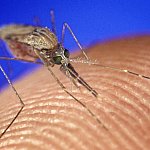77 interesting medical research topics for 2024
Last updated
25 November 2023
Reviewed by
Brittany Ferri, PhD, OTR/L
Medical research is the gateway to improved patient care and expanding our available treatment options. However, finding a relevant and compelling research topic can be challenging.
Use this article as a jumping-off point to select an interesting medical research topic for your next paper or clinical study.
- How to choose a medical research topic
When choosing a research topic , it’s essential to consider a couple of things. What topics interest you? What unanswered questions do you want to address?
During the decision-making and brainstorming process, here are a few helpful tips to help you pick the right medical research topic:

Focus on a particular field of study
The best medical research is specific to a particular area. Generalized studies are often too broad to produce meaningful results, so we advise picking a specific niche early in the process.
Maybe a certain topic interests you, or your industry knowledge reveals areas of need.
Look into commonly researched topics
Once you’ve chosen your research field, do some preliminary research. What have other academics done in their papers and projects?
From this list, you can focus on specific topics that interest you without accidentally creating a copycat project. This groundwork will also help you uncover any literature gaps—those may be beneficial areas for research.
Get curious and ask questions
Now you can get curious. Ask questions that start with why, how, or what. These questions are the starting point of your project design and will act as your guiding light throughout the process.
For example:
What impact does pollution have on children’s lung function in inner-city neighborhoods?
Why is pollution-based asthma on the rise?
How can we address pollution-induced asthma in young children?
- 77 medical research topics worth exploring in 2023
Need some research inspiration for your upcoming paper or clinical study? We’ve compiled a list of 77 topical and in-demand medical research ideas. Let’s take a look.
- Exciting new medical research topics
If you want to study cutting-edge topics, here are some exciting options:
COVID-19 and long COVID symptoms
Since 2020, COVID-19 has been a hot-button topic in medicine, along with the long-term symptoms in those with a history of COVID-19.
Examples of COVID-19-related research topics worth exploring include:
The long-term impact of COVID-19 on cardiac and respiratory health
COVID-19 vaccination rates
The evolution of COVID-19 symptoms over time
New variants and strains of the COVID-19 virus
Changes in social behavior and public health regulations amid COVID-19
Vaccinations
Finding ways to cure or reduce the disease burden of chronic infectious diseases is a crucial research area. Vaccination is a powerful option and a great topic to research.
Examples of vaccination-related research topics include:
mRNA vaccines for viral infections
Biomaterial vaccination capabilities
Vaccination rates based on location, ethnicity, or age
Public opinion about vaccination safety
Artificial tissues fabrication
With the need for donor organs increasing, finding ways to fabricate artificial bioactive tissues (and possibly organs) is a popular research area.
Examples of artificial tissue-related research topics you can study include:
The viability of artificially printed tissues
Tissue substrate and building block material studies
The ethics and efficacy of artificial tissue creation
- Medical research topics for medical students
For many medical students, research is a big driver for entering healthcare. If you’re a medical student looking for a research topic, here are some great ideas to work from:
Sleep disorders
Poor sleep quality is a growing problem, and it can significantly impact a person’s overall health.
Examples of sleep disorder-related research topics include:
How stress affects sleep quality
The prevalence and impact of insomnia on patients with mental health conditions
Possible triggers for sleep disorder development
The impact of poor sleep quality on psychological and physical health
How melatonin supplements impact sleep quality
Alzheimer’s and dementia
Cognitive conditions like dementia and Alzheimer’s disease are on the rise worldwide. They currently have no cure. As a result, research about these topics is in high demand.
Examples of dementia-related research topics you could explore include:
The prevalence of Alzheimer’s disease in a chosen population
Early onset symptoms of dementia
Possible triggers or causes of cognitive decline with age
Treatment options for dementia-like conditions
The mental and physical burden of caregiving for patients with dementia
- Lifestyle habits and public health
Modern lifestyles have profoundly impacted the average person’s daily habits, and plenty of interesting topics explore its effects.
Examples of lifestyle and public health-related research topics include:
The nutritional intake of college students
The impact of chronic work stress on overall health
The rise of upper back and neck pain from laptop use
Prevalence and cause of repetitive strain injuries (RSI)
- Controversial medical research paper topics
Medical research is a hotbed of controversial topics, content, and areas of study.
If you want to explore a more niche (and attention-grabbing) concept, here are some controversial medical research topics worth looking into:
The benefits and risks of medical cannabis
Depending on where you live, the legalization and use of cannabis for medical conditions is controversial for the general public and healthcare providers.
Examples of medical cannabis-related research topics that might grab your attention include:
The legalization process of medical cannabis
The impact of cannabis use on developmental milestones in youth users
Cannabis and mental health diagnoses
CBD’s impact on chronic pain
Prevalence of cannabis use in young people
The impact of maternal cannabis use on fetal development
Understanding how THC impacts cognitive function
Human genetics
The Human Genome Project identified, mapped, and sequenced all human DNA genes. Its completion in 2003 opened up a world of exciting and controversial studies in human genetics.
Examples of human genetics-related research topics worth delving into include:
Medical genetics and the incidence of genetic-based health disorders
Behavioral genetics differences between identical twins
Genetic risk factors for neurodegenerative disorders
Machine learning technologies for genetic research
Sexual health studies
Human sexuality and sexual health are important (yet often stigmatized) medical topics that need new research and analysis.
As a diverse field ranging from sexual orientation studies to sexual pathophysiology, examples of sexual health-related research topics include:
The incidence of sexually transmitted infections within a chosen population
Mental health conditions within the LGBTQIA+ community
The impact of untreated sexually transmitted infections
Access to safe sex resources (condoms, dental dams, etc.) in rural areas
- Health and wellness research topics
Human wellness and health are trendy topics in modern medicine as more people are interested in finding natural ways to live healthier lifestyles.
If this field of study interests you, here are some big topics in the wellness space:
Gluten sensitivity
Gluten allergies and intolerances have risen over the past few decades. If you’re interested in exploring this topic, your options range in severity from mild gastrointestinal symptoms to full-blown anaphylaxis.
Some examples of gluten sensitivity-related research topics include:
The pathophysiology and incidence of Celiac disease
Early onset symptoms of gluten intolerance
The prevalence of gluten allergies within a set population
Gluten allergies and the incidence of other gastrointestinal health conditions
Pollution and lung health
Living in large urban cities means regular exposure to high levels of pollutants.
As more people become interested in protecting their lung health, examples of impactful lung health and pollution-related research topics include:
The extent of pollution in densely packed urban areas
The prevalence of pollution-based asthma in a set population
Lung capacity and function in young people
The benefits and risks of steroid therapy for asthma
Pollution risks based on geographical location
Plant-based diets
Plant-based diets like vegan and paleo diets are emerging trends in healthcare due to their limited supporting research.
If you’re interested in learning more about the potential benefits or risks of holistic, diet-based medicine, examples of plant-based diet research topics to explore include:
Vegan and plant-based diets as part of disease management
Potential risks and benefits of specific plant-based diets
Plant-based diets and their impact on body mass index
The effect of diet and lifestyle on chronic disease management
Health supplements
Supplements are a multi-billion dollar industry. Many health-conscious people take supplements, including vitamins, minerals, herbal medicine, and more.
Examples of health supplement-related research topics worth investigating include:
Omega-3 fish oil safety and efficacy for cardiac patients
The benefits and risks of regular vitamin D supplementation
Health supplementation regulation and product quality
The impact of social influencer marketing on consumer supplement practices
Analyzing added ingredients in protein powders
- Healthcare research topics
Working within the healthcare industry means you have insider knowledge and opportunity. Maybe you’d like to research the overall system, administration, and inherent biases that disrupt access to quality care.
While these topics are essential to explore, it is important to note that these studies usually require approval and oversight from an Institutional Review Board (IRB). This ensures the study is ethical and does not harm any subjects.
For this reason, the IRB sets protocols that require additional planning, so consider this when mapping out your study’s timeline.
Here are some examples of trending healthcare research areas worth pursuing:
The pros and cons of electronic health records
The rise of electronic healthcare charting and records has forever changed how medical professionals and patients interact with their health data.
Examples of electronic health record-related research topics include:
The number of medication errors reported during a software switch
Nurse sentiment analysis of electronic charting practices
Ethical and legal studies into encrypting and storing personal health data
Inequities within healthcare access
Many barriers inhibit people from accessing the quality medical care they need. These issues result in health disparities and injustices.
Examples of research topics about health inequities include:
The impact of social determinants of health in a set population
Early and late-stage cancer stage diagnosis in urban vs. rural populations
Affordability of life-saving medications
Health insurance limitations and their impact on overall health
Diagnostic and treatment rates across ethnicities
People who belong to an ethnic minority are more likely to experience barriers and restrictions when trying to receive quality medical care. This is due to systemic healthcare racism and bias.
As a result, diagnostic and treatment rates in minority populations are a hot-button field of research. Examples of ethnicity-based research topics include:
Cancer biopsy rates in BIPOC women
The prevalence of diabetes in Indigenous communities
Access inequalities in women’s health preventative screenings
The prevalence of undiagnosed hypertension in Black populations
- Pharmaceutical research topics
Large pharmaceutical companies are incredibly interested in investing in research to learn more about potential cures and treatments for diseases.
If you’re interested in building a career in pharmaceutical research, here are a few examples of in-demand research topics:
Cancer treatment options
Clinical research is in high demand as pharmaceutical companies explore novel cancer treatment options outside of chemotherapy and radiation.
Examples of cancer treatment-related research topics include:
Stem cell therapy for cancer
Oncogenic gene dysregulation and its impact on disease
Cancer-causing viral agents and their risks
Treatment efficacy based on early vs. late-stage cancer diagnosis
Cancer vaccines and targeted therapies
Immunotherapy for cancer
Pain medication alternatives
Historically, opioid medications were the primary treatment for short- and long-term pain. But, with the opioid epidemic getting worse, the need for alternative pain medications has never been more urgent.
Examples of pain medication-related research topics include:
Opioid withdrawal symptoms and risks
Early signs of pain medication misuse
Anti-inflammatory medications for pain control
- Identify trends in your medical research with Dovetail
Are you interested in contributing life-changing research? Today’s medical research is part of the future of clinical patient care.
As your go-to resource for speedy and accurate data analysis , we are proud to partner with healthcare researchers to innovate and improve the future of healthcare.
Get started today
Go from raw data to valuable insights with a flexible research platform
Editor’s picks
Last updated: 21 December 2023
Last updated: 16 December 2023
Last updated: 6 October 2023
Last updated: 25 November 2023
Last updated: 12 May 2023
Last updated: 15 February 2024
Last updated: 11 March 2024
Last updated: 12 December 2023
Last updated: 18 May 2023
Last updated: 6 March 2024
Last updated: 10 April 2023
Last updated: 20 December 2023
Latest articles
Related topics, log in or sign up.
Get started for free
Explore the Best Medical and Health Research Topics Ideas
Table of contents
- 1 How to Choose Medical Research Paper Topics
- 2 New Medical Research Paper Topics
- 3 Medical Research Topics for College Students
- 4 Controversial Medical Topics for Research Paper
- 5 Health Research Topics
- 6 Medicine Research Topics
- 7 Healthcare Research Topics
- 8 Public Health Research Topics
- 9 Mental Health Research Paper Topics
- 10 Anatomy Research Topics
- 11 Biomedical Research Topics
- 12 Bioethics Research Topics
- 13 Cancer Research Topics
- 14 Clinical Research Topics
- 15 Critical Care Research Topics
- 16 Pediatric Research Topics
- 17 Dental Research Topics Ideas
- 18 Dermatology Research Topics
- 19 Primary Care Research Topics
- 20 Pharmaceutical Research Topics
- 21 Medical Anthropology Research Topics
- 22 Paramedic Research Paper Topics
- 23 Surgery Research Topics
- 24 Radiology Research Paper Topics
- 25 Anatomy and Physiology Research Paper Topics
- 26 Healthcare Management Research Paper Topics
- 27 Medical Ethics Research Paper Topics
- 28 Conclusion
In such a complex and broad field as medicine, writing an original and compelling research paper is a daunting task. From investigating public care concerns to cancer treatment studies, each student decides where his interests lie. Our goal is to help students find new angles to study and focus on relevant topics. With our resources, you can write an engaging and rigorous paper.
How to Choose Medical Research Paper Topics
Choosing good research paper topics is often more challenging than the writing process itself. You need to select a captivating subject matter that will grab the reader’s attention, showcase your knowledge of a specific field, help you progress in your studies, and perhaps even inspire future research.
To accomplish that, you need to start with brainstorming, followed by thorough research. Here are some great tips to follow:
- Pick an interesting topic – The key is to pick something that you find interesting, and yet make sure it’s not too general or too narrow. It should allow you to delve deep into the subject matter and show that you’re a professional who is ready to take on a challenge when it comes to your chosen field of medicine.
- Narrow down your focus – Once you have a list of potential topics, sift through recent medical research papers to get up-to-date with the latest trends, developments, and issues in medicine and healthcare. Check out textbooks, news articles, and other relevant sources for more information related to your potential topics. If a particular condition or disease interests you (perhaps something that drew you to a career in medicine), there’s your cue for narrowing down your topic.
- Pinpoint the “why,” “how,” and “what” – Whether you are looking into nutrition research paper topics , controversial medical topics, nursing research topics, or anything in-between, ask yourself why each of them is important. How could they contribute to the available medical studies, if any? What new information could they bring to improve the future of medicine? Asking these questions will help you pick the right medical research paper topic that suits you and helps you move forward and reach your aspirations.
To help you on that quest, we’ve compiled a list of topics that you could use or that might inspire you to come up with something unique. Let’s dive in.
New Medical Research Paper Topics
Are you interested in the newest and most interesting developments in medicine? We put hours of effort into identifying the current trends in health research so we could provide you with these examples of topics. Whether you hire a research paper writing service for students or write a paper by yourself, you need an appealing topic to focus on.
- Epidemics versus pandemics
- Child health care
- Medical humanitarian missions in the developing world
- Homoeopathic medicines – the placebo effect
- Virus infections – causes and treatment
- Is medical research on animals ethical
- Vaccination – dangers versus benefits
- Artificial tissues and organs
- Rare genetic diseases
- Brain injuries
Medical Research Topics for College Students
You don’t know where to start with your medical research paper? There are so many things you could write about that the greatest challenge is to narrow them down. This is why we decided to help.
- Antibiotics treatments
- Chronic diseases
- Palliative treatment
- Battling Alzheimer’s disease
- How modern lifestyle affects public health
- Professional diseases
- Sleep disorders
- Changes in physical and mental health due to aging
- Eating disorders
- Terminal diseases
Controversial Medical Topics for Research Paper
In healthcare, new discoveries can change people’s lives in the blink of an eye. This is also the reason why there are so many controversial topics in medicine, which involve anything from religion to ethics or social responsibility. Read on to discover our top controversial research topics.
- Implementing food standards
- Gluten allergy
- Assisted suicide for terminal patients
- Testing vaccines on animals – ethical concerns
- Moral responsibilities regarding cloning
- Marijuana legalization for medical purposes
- Abortion – medical approaches
- Vegan diets – benefits and dangers
- Increased life expectancy: a burden on the healthcare system?
- Circumcision effects
Health Research Topics
Students conducting health research struggle with finding good ideas related to their medical interests. If you want to write interesting college papers, you can select a good topic for our list.
- How environmental changes affect human health
- Deafness: communication disorders
- Household air pollution
- Diabetes – a public danger
- Coronaviruses
- Oral health assessment
- Tobacco and alcohol control
- Diseases caused by lack of physical exercise
- How urban pollution affects respiratory diseases
- Healthy diets
Medicine Research Topics
Regardless of the requirements in your research assignment, you can write about something that is both engaging and useful in your future career. Choose a topic from below.
- Causes for the increasing cancer cases
- Insulin resistance
- How terrorism affects mental health
- AIDS/HIV – latest developments
- Treating pregnant women versus non-pregnant women
- Latest innovations in medical instruments
- Genetic engineering
- Successful treatment of mental diseases
- Is autism a disease
- Natural coma versus artificial coma
Healthcare Research Topics
Healthcare research includes political and social aspects, besides medical. For college students who want to explore how medicine is affected by society’s values or principles, we provide examples of topics for papers. Select yours from the list below.
- Government investment in healthcare services in the EU versus the USA
- Inequalities in healthcare assistance and services
- Electronic health records systems – pros and cons
- Can asylums treat mental issues
- Health care for prison inmates
- Equipment for improving treatment of AIDS
- Correlation between economic development and health care services across countries
- Impact of smoking on organs
- Heart attacks – causes and effects
- Breast cancer – recent developments
Public Health Research Topics
For current examples of public health topics, browse our list. We provide only original, researchable examples for which you can easily find supporting data and evidence.
- Public versus private hospitals
- Health care professionals – management principles
- Surgery failures – who is responsible
- What legal responsibilities has the hospital administration
- Patient service quality in public versus private hospitals
- What benefits national health care systems have
- Estimated costs of cancer treatments
- Public health in developing countries
- Banning tobacco ads – importance for public health
- Government solutions to the anti-vaccine’s movement
Mental Health Research Paper Topics
Mental health is one of the most complex areas of medicine, where things are never as clear as with other medical issues. This increases the research potential of the field with plenty of topics left for debate.
- Causes of anxiety disorders
- Bulimia versus anorexia
- Childhood trauma
- Mental health public policies
- Postpartum Depression
- Posttraumatic Stress Disorder
- Seasonal Affective Disorder
- Schizophrenia
Anatomy Research Topics
Anatomy covers everything about the human body and how it works. If you find that intriguing and want to pay for medical research paper, start by selecting a topic.
- Chemotherapy: how it affects the body
- Thyroid glands – functions in the body
- Human endocrine system
- Heart diseases
- How does the human muscular system develop
- Lymphatic system – importance
- Investigating genetic diseases
- Digestive system
Biomedical Research Topics
Biology and medicine often work together. For the newest changes in the biomedical field, check our topics.
- Alzheimer’s disease – paths for treatment
- Vaccines and drug development in the treatment of Ebola
- Antibiotic resistance
- Biological effects caused by aging
- Air pollution effects on health
- Infectious disease past versus present
- Regenerative medicine
- Biomedical diagnostics
- Biomedical technology
Bioethics Research Topics
A controversial area of medicine, bioethics is where you get the chance to add personal input to a research topic and come up with new insights. You could consider these subjects.
- Organ donation
- Alternative or complementary medicine
- Assisted suicide or the right to die
- Artificial insemination or surrogacy
- Chemical and biological warfare
- Contraception
- Environmental bioethics
- In Vitro fertilization
Cancer Research Topics
Are you writing a paper related to cancer causes, diagnosis, treatment or effects? Look below for a hot topic that it’s easy to research and important for medical advance.
- Ability of immune system cells to fight cancer
- Computational oncology
- Metastasis affected by drug resistance
- Stem cells – applications for cancer treatment
- Tumor microenvironment
- Obesity and age in cancer occurrence
- Early cancer detection – benefits
- Artificial intelligence predicting cancer
- Hematologic malignancies
- Pathogen-related cancers
Clinical Research Topics
Learn more about clinical medicine by conducting more in-depth research. We prepared for you a list of relevant issues to touch upon.
- Ethical concerns regarding research on human subjects
- Subject recruitment
- Budget preparation
- Human subject protection
- Clinical trials – financial support
- Clinical practices for health professionals
- Using vulnerable populations in clinical research
- Quality assurance in clinical research
- Academic clinical trials versus clinical trials units
- Data collection and management
Critical Care Research Topics
Critical care is a key area in medical studies. Explore these topics in your research paper to gain more valuable knowledge in this field. You can also get in contact with nursing research paper writers .
- Obesity and asthma – clinical manifestations
- Chronic obstructive pulmonary disease
- Rhythm analysis for cardiac arrest
- Traumatic brain injury – fluid resuscitation
- Hydrocortisone for multiple trauma patients
- Care and nutrition for critically ill adults
- Diagnosis of hypersensitivity pneumonitis
- Coma and sedation scales
- Artificial airways suctioning
- Arterial puncture and arterial line
Pediatric Research Topics
Any topic that refers to health care for children, pregnant women, mothers, and adolescents goes under pediatric care.
- Attention deficit hyperactivity disorder (ADHD)
- Congenital heart disease in newborns
- Adolescent medicine
- Neonatal medicine
- Rare diseases in children and teenagers
- Obesity and weight fluctuations
- Behavioral sleep problems in children
- Children with anemia
Dental Research Topics Ideas
Choose a topic on oral health or dental care from this list of the most interesting topics in the field.
- How smoking affects oral health
- Children’s risk for dental caries
- Dental anxiety
- Types of dental materials – new advances
- Bad breath bacteria
- How diabetes affects oral health
- Oral cancer
- Dental pain – types, causes
- Dental implants
- Oral health-related quality of life
Dermatology Research Topics
Find the best research topic for your dermatology paper among our examples.
- Atopic dermatitis
- Contact dermatitis
- Epidemiology behind uncommon skin disorders
- Cutaneous aging
- Risk factors of melanoma skin cancer
- Acne versus rosacea
- Genetic testing for skin conditions
- Effects of cosmetic agents on skin health
- Improving skin barrier with pharmaceutical agents
- Skin manifestations of autoimmune disorders
Primary Care Research Topics
Write a primary care paper that can demonstrate your research skills and interest in powerful scientific findings.
- Primary care for vulnerable/uninsured populations
- Interpersonal continuity in care treatment
- How primary care contributes to health systems
- Primary care delivery models
- Developments in family medicine
- Occupational/environmental health
- Pharmacotherapy approaches
- Formal allergy testing
- Oral contraception side effects
- Dietary or behavioral interventions for obesity management
Pharmaceutical Research Topics
Pharma students who need paper topics can use one from our list. We include all things related to pharmacy life.
- Drugs that can treat cancer
- Drug excretion
- Elimination rate constant
- Inflammatory stress drug treatment
- Aspirin poising
- Ibuprofen – dangers versus benefits
- Toxicodynamics
- Opioid use disorder
- Pharmacotherapy for schizophrenia
- Ketamine in depression treatment
Medical Anthropology Research Topics
Medical anthropology unites different areas of human knowledge. Find powerful ideas for a paper below.
- Cultural contexts regarding reproductive health
- Women sexuality
- Anthropological aspects of health care
- Contributions of social sciences to public health
- Euthanasia and medical ethics across cultures
- Health-related behavior in adults across cultures
- Transcultural nursing
- Forensic psychiatry
- Symptoms of Celiac Disease – a disease with no symptoms
- Nursing ethics
Paramedic Research Paper Topics
Topics for paramedic research must be based on evidence, data, statistics, or practical experience. Just like ours.
- Trends and statistics in EMS
- Disaster medicine
- Mass casualties
- Pandemics and epidemics
- Infection control
- Basic versus advanced life support
- Scene safety in EMS
- Shock management
- Motor vehicle accidents
Surgery Research Topics
Discover all the intricacies of surgeries that save lives by writing about our topics.
- Medical malpractice and legal issues
- Methicillin-resistant Staphylococcus aureus
- Pain management
- Perioperative nursing
- Wound management
- Colorectal cancer surgery
- Breast cancer surgery
- Minimally invasive surgeries
- Vascular disease
Radiology Research Paper Topics
Find a radiology topic related to your academic interests to write a successful paper.
- Using MRI to diagnose hepatic focal lesions
- Multidetector computer tomography
- Ultrasound elastography in breast cancer
- Assessing traumatic spinal cord injuries with MRI diffusion tensor imaging
- Sonographic imaging to detect male infertility
- Role of tomography in diagnosing cancer
- Brain tumor surgery with magnetic resonance imaging
- Bacterial meningitis imaging
Anatomy and Physiology Research Paper Topics
Any ideas for a medical research paper? We have included the most important topics for an anatomy and physiology paper.
- What role has the endocrine system
- Staphylococcus aureus
- Environmental factors that affect development of human muscular system
- What role has the lymphatic system
- An investigation of genetic diseases
- Explaining the aging process
- The digestive tract
- Effects of stress on cells and muscles
- Evolution of the human nervous system
- What role has the cardiovascular system
Healthcare Management Research Paper Topics
There are numerous topics you could write about when it comes to healthcare management. There’s a wide range of options to pick, from infrastructure, staff, and financial management to HR and patient management. Here are some of the top healthcare management research paper options.
- Medical talent acquisition and retention
- Best methods for enhancing preventative care measures
- The role of telemedicine in reinventing healthcare management
- Patient care and the ability to pay for healthcare
- Mid-level healthcare providers in the emergency department
- The opioid crisis: policies and programs
- Urgent care and walk-in clinics
- Hospital emergency management plan during an epidemic
- Hospital records management and patient privacy
- Financial crises: challenges and opportunities
Medical Ethics Research Paper Topics
Medical ethics is a field that opens the door to numerous compelling topics for research papers. Here are some of the most appealing ones you could tackle.
- Clinical research on humans
- Vaccines and immunization
- Religious beliefs in healthcare
- Euthanasia and physician-assisted suicide
- Ethical issues across cultures
- Amniocentesis or prenatal birth defect testing
- Medical malpractice and going back to work
- Racial and ethnic preferences and perceptions in organ donations
- Racial and ethnic disparities in healthcare
- Ethical concerns of AI in healthcare
If you need further assistance with your medical research paper, PapersOwl is here for you. Our expert writers can provide you with top-notch research and help you write an impressive paper. Contact us anytime, pick your writer, tell them more about your topic, and get a unique, plagiarism-free research paper with impeccable grammar and formatting.
Readers also enjoyed

WHY WAIT? PLACE AN ORDER RIGHT NOW!
Just fill out the form, press the button, and have no worries!
We use cookies to give you the best experience possible. By continuing we’ll assume you board with our cookie policy.
Research Topics & Ideas: Healthcare
100+ Healthcare Research Topic Ideas To Fast-Track Your Project

Finding and choosing a strong research topic is the critical first step when it comes to crafting a high-quality dissertation, thesis or research project. If you’ve landed on this post, chances are you’re looking for a healthcare-related research topic , but aren’t sure where to start. Here, we’ll explore a variety of healthcare-related research ideas and topic thought-starters across a range of healthcare fields, including allopathic and alternative medicine, dentistry, physical therapy, optometry, pharmacology and public health.
NB – This is just the start…
The topic ideation and evaluation process has multiple steps . In this post, we’ll kickstart the process by sharing some research topic ideas within the healthcare domain. This is the starting point, but to develop a well-defined research topic, you’ll need to identify a clear and convincing research gap , along with a well-justified plan of action to fill that gap.
If you’re new to the oftentimes perplexing world of research, or if this is your first time undertaking a formal academic research project, be sure to check out our free dissertation mini-course. In it, we cover the process of writing a dissertation or thesis from start to end. Be sure to also sign up for our free webinar that explores how to find a high-quality research topic.
Overview: Healthcare Research Topics
- Allopathic medicine
- Alternative /complementary medicine
- Veterinary medicine
- Physical therapy/ rehab
- Optometry and ophthalmology
- Pharmacy and pharmacology
- Public health
- Examples of healthcare-related dissertations
Allopathic (Conventional) Medicine
- The effectiveness of telemedicine in remote elderly patient care
- The impact of stress on the immune system of cancer patients
- The effects of a plant-based diet on chronic diseases such as diabetes
- The use of AI in early cancer diagnosis and treatment
- The role of the gut microbiome in mental health conditions such as depression and anxiety
- The efficacy of mindfulness meditation in reducing chronic pain: A systematic review
- The benefits and drawbacks of electronic health records in a developing country
- The effects of environmental pollution on breast milk quality
- The use of personalized medicine in treating genetic disorders
- The impact of social determinants of health on chronic diseases in Asia
- The role of high-intensity interval training in improving cardiovascular health
- The efficacy of using probiotics for gut health in pregnant women
- The impact of poor sleep on the treatment of chronic illnesses
- The role of inflammation in the development of chronic diseases such as lupus
- The effectiveness of physiotherapy in pain control post-surgery

Topics & Ideas: Alternative Medicine
- The benefits of herbal medicine in treating young asthma patients
- The use of acupuncture in treating infertility in women over 40 years of age
- The effectiveness of homoeopathy in treating mental health disorders: A systematic review
- The role of aromatherapy in reducing stress and anxiety post-surgery
- The impact of mindfulness meditation on reducing high blood pressure
- The use of chiropractic therapy in treating back pain of pregnant women
- The efficacy of traditional Chinese medicine such as Shun-Qi-Tong-Xie (SQTX) in treating digestive disorders in China
- The impact of yoga on physical and mental health in adolescents
- The benefits of hydrotherapy in treating musculoskeletal disorders such as tendinitis
- The role of Reiki in promoting healing and relaxation post birth
- The effectiveness of naturopathy in treating skin conditions such as eczema
- The use of deep tissue massage therapy in reducing chronic pain in amputees
- The impact of tai chi on the treatment of anxiety and depression
- The benefits of reflexology in treating stress, anxiety and chronic fatigue
- The role of acupuncture in the prophylactic management of headaches and migraines

Topics & Ideas: Dentistry
- The impact of sugar consumption on the oral health of infants
- The use of digital dentistry in improving patient care: A systematic review
- The efficacy of orthodontic treatments in correcting bite problems in adults
- The role of dental hygiene in preventing gum disease in patients with dental bridges
- The impact of smoking on oral health and tobacco cessation support from UK dentists
- The benefits of dental implants in restoring missing teeth in adolescents
- The use of lasers in dental procedures such as root canals
- The efficacy of root canal treatment using high-frequency electric pulses in saving infected teeth
- The role of fluoride in promoting remineralization and slowing down demineralization
- The impact of stress-induced reflux on oral health
- The benefits of dental crowns in restoring damaged teeth in elderly patients
- The use of sedation dentistry in managing dental anxiety in children
- The efficacy of teeth whitening treatments in improving dental aesthetics in patients with braces
- The role of orthodontic appliances in improving well-being
- The impact of periodontal disease on overall health and chronic illnesses

Tops & Ideas: Veterinary Medicine
- The impact of nutrition on broiler chicken production
- The role of vaccines in disease prevention in horses
- The importance of parasite control in animal health in piggeries
- The impact of animal behaviour on welfare in the dairy industry
- The effects of environmental pollution on the health of cattle
- The role of veterinary technology such as MRI in animal care
- The importance of pain management in post-surgery health outcomes
- The impact of genetics on animal health and disease in layer chickens
- The effectiveness of alternative therapies in veterinary medicine: A systematic review
- The role of veterinary medicine in public health: A case study of the COVID-19 pandemic
- The impact of climate change on animal health and infectious diseases in animals
- The importance of animal welfare in veterinary medicine and sustainable agriculture
- The effects of the human-animal bond on canine health
- The role of veterinary medicine in conservation efforts: A case study of Rhinoceros poaching in Africa
- The impact of veterinary research of new vaccines on animal health
Topics & Ideas: Physical Therapy/Rehab
- The efficacy of aquatic therapy in improving joint mobility and strength in polio patients
- The impact of telerehabilitation on patient outcomes in Germany
- The effect of kinesiotaping on reducing knee pain and improving function in individuals with chronic pain
- A comparison of manual therapy and yoga exercise therapy in the management of low back pain
- The use of wearable technology in physical rehabilitation and the impact on patient adherence to a rehabilitation plan
- The impact of mindfulness-based interventions in physical therapy in adolescents
- The effects of resistance training on individuals with Parkinson’s disease
- The role of hydrotherapy in the management of fibromyalgia
- The impact of cognitive-behavioural therapy in physical rehabilitation for individuals with chronic pain
- The use of virtual reality in physical rehabilitation of sports injuries
- The effects of electrical stimulation on muscle function and strength in athletes
- The role of physical therapy in the management of stroke recovery: A systematic review
- The impact of pilates on mental health in individuals with depression
- The use of thermal modalities in physical therapy and its effectiveness in reducing pain and inflammation
- The effect of strength training on balance and gait in elderly patients
Topics & Ideas: Optometry & Opthalmology
- The impact of screen time on the vision and ocular health of children under the age of 5
- The effects of blue light exposure from digital devices on ocular health
- The role of dietary interventions, such as the intake of whole grains, in the management of age-related macular degeneration
- The use of telemedicine in optometry and ophthalmology in the UK
- The impact of myopia control interventions on African American children’s vision
- The use of contact lenses in the management of dry eye syndrome: different treatment options
- The effects of visual rehabilitation in individuals with traumatic brain injury
- The role of low vision rehabilitation in individuals with age-related vision loss: challenges and solutions
- The impact of environmental air pollution on ocular health
- The effectiveness of orthokeratology in myopia control compared to contact lenses
- The role of dietary supplements, such as omega-3 fatty acids, in ocular health
- The effects of ultraviolet radiation exposure from tanning beds on ocular health
- The impact of computer vision syndrome on long-term visual function
- The use of novel diagnostic tools in optometry and ophthalmology in developing countries
- The effects of virtual reality on visual perception and ocular health: an examination of dry eye syndrome and neurologic symptoms
Topics & Ideas: Pharmacy & Pharmacology
- The impact of medication adherence on patient outcomes in cystic fibrosis
- The use of personalized medicine in the management of chronic diseases such as Alzheimer’s disease
- The effects of pharmacogenomics on drug response and toxicity in cancer patients
- The role of pharmacists in the management of chronic pain in primary care
- The impact of drug-drug interactions on patient mental health outcomes
- The use of telepharmacy in healthcare: Present status and future potential
- The effects of herbal and dietary supplements on drug efficacy and toxicity
- The role of pharmacists in the management of type 1 diabetes
- The impact of medication errors on patient outcomes and satisfaction
- The use of technology in medication management in the USA
- The effects of smoking on drug metabolism and pharmacokinetics: A case study of clozapine
- Leveraging the role of pharmacists in preventing and managing opioid use disorder
- The impact of the opioid epidemic on public health in a developing country
- The use of biosimilars in the management of the skin condition psoriasis
- The effects of the Affordable Care Act on medication utilization and patient outcomes in African Americans
Topics & Ideas: Public Health
- The impact of the built environment and urbanisation on physical activity and obesity
- The effects of food insecurity on health outcomes in Zimbabwe
- The role of community-based participatory research in addressing health disparities
- The impact of social determinants of health, such as racism, on population health
- The effects of heat waves on public health
- The role of telehealth in addressing healthcare access and equity in South America
- The impact of gun violence on public health in South Africa
- The effects of chlorofluorocarbons air pollution on respiratory health
- The role of public health interventions in reducing health disparities in the USA
- The impact of the United States Affordable Care Act on access to healthcare and health outcomes
- The effects of water insecurity on health outcomes in the Middle East
- The role of community health workers in addressing healthcare access and equity in low-income countries
- The impact of mass incarceration on public health and behavioural health of a community
- The effects of floods on public health and healthcare systems
- The role of social media in public health communication and behaviour change in adolescents
Examples: Healthcare Dissertation & Theses
While the ideas we’ve presented above are a decent starting point for finding a healthcare-related research topic, they are fairly generic and non-specific. So, it helps to look at actual dissertations and theses to see how this all comes together.
Below, we’ve included a selection of research projects from various healthcare-related degree programs to help refine your thinking. These are actual dissertations and theses, written as part of Master’s and PhD-level programs, so they can provide some useful insight as to what a research topic looks like in practice.
- Improving Follow-Up Care for Homeless Populations in North County San Diego (Sanchez, 2021)
- On the Incentives of Medicare’s Hospital Reimbursement and an Examination of Exchangeability (Elzinga, 2016)
- Managing the healthcare crisis: the career narratives of nurses (Krueger, 2021)
- Methods for preventing central line-associated bloodstream infection in pediatric haematology-oncology patients: A systematic literature review (Balkan, 2020)
- Farms in Healthcare: Enhancing Knowledge, Sharing, and Collaboration (Garramone, 2019)
- When machine learning meets healthcare: towards knowledge incorporation in multimodal healthcare analytics (Yuan, 2020)
- Integrated behavioural healthcare: The future of rural mental health (Fox, 2019)
- Healthcare service use patterns among autistic adults: A systematic review with narrative synthesis (Gilmore, 2021)
- Mindfulness-Based Interventions: Combatting Burnout and Compassionate Fatigue among Mental Health Caregivers (Lundquist, 2022)
- Transgender and gender-diverse people’s perceptions of gender-inclusive healthcare access and associated hope for the future (Wille, 2021)
- Efficient Neural Network Synthesis and Its Application in Smart Healthcare (Hassantabar, 2022)
- The Experience of Female Veterans and Health-Seeking Behaviors (Switzer, 2022)
- Machine learning applications towards risk prediction and cost forecasting in healthcare (Singh, 2022)
- Does Variation in the Nursing Home Inspection Process Explain Disparity in Regulatory Outcomes? (Fox, 2020)
Looking at these titles, you can probably pick up that the research topics here are quite specific and narrowly-focused , compared to the generic ones presented earlier. This is an important thing to keep in mind as you develop your own research topic. That is to say, to create a top-notch research topic, you must be precise and target a specific context with specific variables of interest . In other words, you need to identify a clear, well-justified research gap.
Need more help?
If you’re still feeling a bit unsure about how to find a research topic for your healthcare dissertation or thesis, check out Topic Kickstarter service below.

You Might Also Like:

15 Comments
I need topics that will match the Msc program am running in healthcare research please
Hello Mabel,
I can help you with a good topic, kindly provide your email let’s have a good discussion on this.
Can you provide some research topics and ideas on Immunology?
Thank you to create new knowledge on research problem verse research topic
Help on problem statement on teen pregnancy
This post might be useful: https://gradcoach.com/research-problem-statement/
can you provide me with a research topic on healthcare related topics to a qqi level 5 student
Please can someone help me with research topics in public health ?
Hello I have requirement of Health related latest research issue/topics for my social media speeches. If possible pls share health issues , diagnosis, treatment.
I would like a topic thought around first-line support for Gender-Based Violence for survivors or one related to prevention of Gender-Based Violence
Please can I be helped with a master’s research topic in either chemical pathology or hematology or immunology? thanks
Can u please provide me with a research topic on occupational health and safety at the health sector
Good day kindly help provide me with Ph.D. Public health topics on Reproductive and Maternal Health, interventional studies on Health Education
may you assist me with a good easy healthcare administration study topic
May you assist me in finding a research topic on nutrition,physical activity and obesity. On the impact on children
Submit a Comment Cancel reply
Your email address will not be published. Required fields are marked *
Save my name, email, and website in this browser for the next time I comment.
- Print Friendly

MARK H. EBELL, MD, MS, AND ROLAND GRAD, MD, MSc
June 8, 2020 Editor's Note: The hypertension study (reference 5) is under investigation by the editor of the journal in which it was published due to inconsistencies in the data noted by others. Caution is warranted regarding applying these findings to clinical care.
Am Fam Physician. 2020;101(10):608-617
Author disclosure: Dr. Ebell is cofounder and editor-in-chief of Essential Evidence Plus. See Editor's Note . Dr. Grad has no relevant financial affiliations.
In 2019, regular surveillance of 110 English-language research journals identified 254 studies that met the criteria to become POEMs (patient-oriented evidence that matters). Physician members of the Canadian Medical Association rated these POEMs for their relevance to patients in their practices. This article summarizes the clinical questions and bottom-line answers from the top 20 POEMs of 2019. Taking blood pressure medications at night results in a large mortality reduction over six years compared with morning dosing. Automated devices are the best way to measure blood pressure. Nonfasting lipid profiles are preferred over fasting lipid profiles, and nonfasting and fasting lipid profiles are equally effective at predicting risk. The benefit of statins for primary prevention in people 75 years and older is uncertain at best. Aspirin has no net benefit for primary prevention of cardiovascular disease and has no effect on cancer outcomes. An Italian study found fecal immunochemical testing over five biennial screening cycles has a similar colorectal cancer yield as screening colonoscopy, whereas a meta-analysis found that taking aspirin, an anticoagulant, or a nonsteroidal anti-inflammatory drug has no impact on the positive predictive value of fecal immunochemical testing. Regarding infections, a meta-analysis showed that patients presenting with symptoms of acute respiratory tract infection are unlikely to have pneumonia if vital signs and the lung examination findings are normal. For streptococcal pharyngitis (strep throat), penicillin V at a dosage of 800 mg four times a day for five days is at least as effective as a dosage of 1,000 mg three times a day for 10 days. A primary care study in the United Kingdom reinforced that clinicians should counsel parents of children with lower respiratory tract symptoms to be patient, because these infections can take three weeks or more to fully resolve. Among direct oral anticoagulants, apixaban has the lowest bleeding risk, and cotreating with a proton pump inhibitor significantly reduces bleeding risk. Single ibuprofen doses from 400 to 800 mg significantly reduce acute pain to a similar degree. The two-dose recombinant zoster vaccine is much more effective than the single-dose live, attenuated vaccine but with a greater risk of injection site pain. Exercise helps reduce the risk of falls in older adults. Practice guidelines from 2019 on antithrombotics for atrial fibrillation, the management of type 2 diabetes mellitus, and screening for breast cancer were judged to be especially relevant.
Every year for the past 21 years, a team of experts in evidence-based medicine have systematically reviewed more than 110 English-language research journals to identify the original research most likely to change and improve primary care practice. The team includes experts in family medicine, pharmacology, hospital medicine, and women's health. 1 , 2
The goal of this process is to identify POEMs (patient-oriented evidence that matters). A POEM must report at least one patient-oriented outcome, such as improvement in symptoms, morbidity, or mortality. It should also be free of important methodologic bias, making the results valid and trustworthy. Finally, if applied in practice, the results would change what some family physicians do in patient care by prompting them to adopt a beneficial new practice or discontinue one that is ineffective or harmful. This should improve patient outcomes. Of more than 20,000 research studies published in 2019 in the journals reviewed by the POEMs team, 254 met criteria for validity, relevance, and practice change.
The Canadian Medical Association (CMA) purchases a subscription to POEMs for its members, many of whom receive the daily POEM by email. When members read a POEM, they can rate it with a validated questionnaire called the Information Assessment Method. POEM ratings address the domains of clinical relevance, cognitive impact, use in practice, and expected health benefits if that POEM were to be applied in patient care. 3 , 4 In 2019, each of the 254 POEMs were rated by an average of 1,530 physicians.
In this article, we present the 20 POEMs rated highest for clinical relevance by CMA members in 2019. This installment of our annual series ( https://www.aafp.org/afp/toppoems ) summarizes the clinical question and bottom-line answer for each research study identified as a top 20 POEM, organized by topic and followed by a brief discussion. We also present the three most relevant practice guidelines identified by CMA members. The full text of the POEMs in this article are available at https://www.aafp.org/journals/afp/content/top-poems/2019.html .
Hypertension
Hypertension is among the most common conditions managed by primary care physicians and is the topic of the two POEMs rated most relevant to readers in 2019 ( Table 1 ) . 5 , 6 Researchers randomized 19,168 adults with hypertension to take their antihypertensive medications at bedtime or first thing in the morning. 5 Patients were prescribed an antihypertensive from an approved list of the most common therapies. Patients taking their medications at bedtime had a lower likelihood of the composite outcome of myocardial infarction (MI), coronary revascularization, heart failure, stroke, or cardiovascular death (hazard ratio = 0.55; 95% CI, 0.50 to 0.61; number needed to treat to prevent one event over 6.3 years = 20). All-cause mortality was reduced to a similar extent. This is a large effect for a six-year study, and a practice-changer for many patients and physicians. Best of all, it costs nothing to make this change. See Editor's Note
How we measure blood pressure continues to be a subject of research. The next POEM was a meta-analysis of 31 studies, which included a total of 9,279 patients and compared automated in-office blood pressure readings with in-office manual measurements or ambulatory automated recordings during waking hours (the reference standard). 6 Automated in-office measurements were performed without anyone present to activate the machine and used three to five readings separated by one- to two-minutes. Ambulatory automated measurements were 13.4/5.9 mm Hg lower than the manual in-office measurements and were similar to the in-office automated measurements. To avoid starting or intensifying antihypertensive medication unnecessarily, it is critical to measure blood pressure using an automated device. Patients should also bring in their home device so that it can be calibrated with the office device.
Behavioral Medicine
Behavioral medicine POEMs are summarized in Table 2 . 7 – 9 The first POEM in this group was a well-executed network meta-analysis of medical therapy for generalized anxiety disorder. 7 A network meta-analysis includes studies comparing drugs with each other and with placebo, allowing for direct and indirect comparisons. The meta-analysis included 89 studies involving 25,000 patients and 22 different drugs; none of the studies were longer than 26 weeks. After excluding drugs that were poorly tolerated such as quetiapine (Seroquel), paroxetine (Paxil), and benzodiazepines, the most effective commercially available drugs overall were, in order of effectiveness, bupropion (Wellbutrin), duloxetine (Cymbalta), mirtazapine (Remeron), hydroxyzine, sertraline (Zoloft), pregabalin (Lyrica), venlafaxine, escitalopram (Lexapro), fluoxetine (Prozac), buspirone (Buspar), and citalopram (Celexa). Drugs that did not significantly decrease anxiety scores included imipramine, maprotiline, opipramol (not available in the United States), tiagabine (Gabitril), vilazodone (Viibryd), and vortioxetine (Trintellix). The drugs with the best combination of effectiveness and tolerability were duloxetine, pregabalin, venlafaxine, and escitalopram.
The next POEM included videotaped encounters between 252 patients and 15 English primary care physicians. 8 Patients were asked about the main reason for their visit beforehand, and this reason was almost always addressed during the visit. However, of the 139 patients who identified at least one symptom in the previsit interview, 43 failed to disclose a total of 67 symptoms during the visit, most often stress, worries or sadness; tiredness or sleep problems; problems passing urine; headache; and intimate or other personal problems. Although physicians cannot ask every patient about all of their problems during a visit, it is important to know that patients may not fully disclose symptoms. Physicians should make patients feel as safe as possible while looking for cues to undisclosed symptoms, and routinely asking, “Is there anything else I can help you with?”
The last POEM in the behavioral medicine group was an individual patient data meta-analysis of how early treatment response impacts later outcomes in patients with depression. 9 The researchers combined the individual patient data from 30 randomized trials, with 2,184 patients receiving placebo and 6,058 receiving active therapy. After six weeks of treatment, about 50% of patients in the active treatment group responded to treatment, with 32% achieving remission of symptoms. Response was defined as at least a 50% reduction in the Hamilton Rating Scale for Depression score, and remission was defined as a score of 7 points or less. By 12 weeks, the response rate was 68% in the active treatment group, with 49% achieving remission. Patients with improvement at two weeks were more likely to respond by six weeks, whereas among patients without early improvement, 33% responded by six weeks and 43% by 12 weeks. The absence of an early response does not preclude later response; therefore, physicians should not be too quick to change antidepressant medications.
Cardiovascular
Cardiovascular medicine POEMs are summarized in Table 3 . 10 – 14 The first two POEMs in this group address statin use. Many physicians and laboratory staff continue to insist that patients be fasting for lipid profile testing. The first POEM compared fasting and nonfasting lipid profiles in the same patients four weeks apart. 10 There was little difference between fasting and nonfasting measurements of low-density and high-density lipoprotein cholesterol levels and only a small increase in triglyceride levels (25 mg per dL [0.28 mmol per L]) with nonfasting measurements. Most importantly, the association between lipid levels and subsequent cardiovascular events was identical for fasting and nonfasting lipid measurements. Guidelines support nonfasting lipid measurements. 15 , 16 It is time to simplify our patients' lives and educate local laboratory staff, who often turn away patients who disclose that they are not fasting.
In the next POEM, data were pooled from 28 randomized trials of statins with more than 186,000 total patients. 11 This report focused on the 14,000 patients who were 75 years or older; the median follow-up was five years. There was only a small reduction in the composite outcome of MI and cardiovascular death among all patients (2.6% with statins vs. 3.0% with placebo; number needed to treat = 250 per year); the benefit was significant only in patients with preexisting cardiovascular disease. Statins had no effect on revascularization, stroke, cancer incidence, or cancer mortality.
This was a big year for aspirin studies. The next three POEMs, from two separate trials, examine the benefits and harms of aspirin therapy for primary prevention in contemporary populations. Prior studies that found a net benefit of aspirin for the primary prevention of cardiovascular disease and cancer (mostly colorectal) all recruited patients before 2002. In more recent years, fewer patients smoke or have uncontrolled hypertension, more are taking a statin, and we have widespread colorectal cancer screening. In this context, does aspirin still have a role?
Two aspirin POEMs were from the ASPREE (Aspirin in Reducing Events in the Elderly) trial, which included 19,114 adults 70 years and older in the United States and Australia (65 and older if black or Hispanic). Patients without known cardiovascular disease were randomized to aspirin, 100 mg, or placebo and were followed for a median of 4.7 years. The first POEM found no significant reduction in the likelihood of cardiovascular disease with aspirin, including fatal cardiovascular disease, fatal or nonfatal MI, and fatal or nonfatal ischemic stroke. However, they found a significant increase in major hemorrhages with aspirin. 12 The second POEM from the ASPREE trial found no difference between groups for disability-free survival, defined as a composite of death, dementia, or persistent physical disability. 13 A separate report from the ASPREE investigators (not one of the top 20 POEMs) found an increase in all-cause mortality with aspirin, primarily due to a significant increase in cancer-specific mortality (3.1% vs. 2.3%).
The third aspirin POEM was from the ASCEND (A Study of Cardiovascular Events in Diabetes) trial and included 15,480 adults 40 years and older with diabetes mellitus but no known cardiovascular disease. The patients were randomized to aspirin, 100 mg, or placebo and were followed for a median of 7.4 years. 14 There was a reduction in the composite of nonfatal MI, nonfatal stroke, or cardiovascular death with aspirin, but a corresponding increase in major hemorrhage with no effect on cardiovascular or all-cause mortality.
What do we tell our patients? A recent meta-analysis compared trials of aspirin therapy that recruited patients from 1978 to 2002 with four large trials that recruited patients since 2005. 17 The newer studies showed fewer cardiovascular benefits and no reduction in cancer incidence or mortality with aspirin as primary prevention. Based on a meta-analysis of the four most recent studies with a total of 61,604 patients, for every 1,200 patients taking aspirin instead of placebo for five years, there would be four fewer major cardiovascular events and three fewer ischemic strokes but eight more major hemorrhages, including three more intracranial hemorrhages. This study agrees with recent European guidelines that no longer recommend aspirin for primary prevention. 18 The 2016 U.S. Preventive Services Task Force (USPSTF) and 2019 American College of Cardiology guidelines recommend consideration of aspirin for primary prevention only in selected patients at high cardiovascular risk and low bleeding risk. 19 , 20 The USPSTF recommendation is currently being updated. 21
Cancer Screening
The three POEMs on cancer screening ( Table 4 ) address colorectal cancer. 22 – 24 Fecal immunochemical testing (FIT) is the recommended method for colorectal cancer screening in most countries that have screening programs and is the subject of the first two POEMs in this group. The first POEM is an Italian study that reported the diagnostic yield of five rounds of biennial FIT in persons 50 to 69 years of age submitting a single specimen. 22 The highest rates of detection occurred in the first round, as prevalent cancers were detected, and declined and then stabilized in later rounds. Over the 10-year study, about 25% of men and 18% of women had a positive test result requiring a follow-up colonoscopy. The cumulative rate was 6% for advanced adenoma and 0.85% for colorectal cancer, which are similar to findings in studies of colonoscopy in Italy and the United States. 25 , 26 These results mean we can have confidence in FIT as a screening test while we wait for the results of ongoing randomized trials of FIT vs. colonoscopy-based screening.
The second POEM about FIT was a meta-analysis evaluating the impact of aspirin, nonsteroidal anti-inflammatory drugs, and anticoagulants on the positive predictive value of the test. 23 It could theoretically go in either direction, increasing false positives by making noncancerous lesions more likely to bleed or increasing true positives by making cancers and adenomas more likely to bleed. The researchers found that the use of any of these medications had almost no effect on the positive predictive value, which was approximately 6% for colorectal cancer and 40% for advanced neoplasia. FIT requires only a single specimen and no dietary preparation, and now we know that patients undergoing FIT can continue to take medications that increase bleeding risk.
Finally, a study used a Swedish cancer registry with 173,796 patients to determine the impact of family history on the risk of colorectal cancer. 24 The relative risk of colorectal cancer using no affected relatives as the reference was 1.2 for a single second-degree relative with a history of colorectal cancer, 1.6 for a single first-degree relative or two second-degree relatives, 2.3 for one first-degree relative and one second-degree relative, 2.5 for two first-degree relatives, and 5.4 for one first-degree and two second-degree relatives. However, a previous study found that this family history–related risk is attenuated once patients reach 55 years of age. 27
POEMs on managing infections are summarized in Table 5 . 28 – 30 The first POEM is a meta-analysis of studies that recruited outpatients with acute respiratory tract infections who received chest radiography. 28 The goal was to identify the best sign, symptom, or combination that allows clinicians to rule out community-acquired pneumonia (CAP). The researchers found that for patients with the combination of normal vital signs and normal lung examination findings, the likelihood of CAP is low at 0.4%. This could help reduce unnecessary chest radiography if applied consistently.
The second POEM in this group was selected as one of the top three research studies out of more than 400 presented at the 2019 North American Primary Care Research Group meeting. 29 This Swedish study included 422 adults and children presenting to a primary care physician with moderately severe streptococcal pharyngitis (strep throat). Patients were randomized to penicillin V at a dosage of 800 mg four times a day for five days or 1,000 mg three times a day for 10 days. Those receiving the higher dose over a shorter course of treatment had similar cure rates as those receiving longer-duration therapy, with quicker symptom resolution and no increase in recurrence. Many other studies have found similar results with antibiotics for a range of infections.
An accurate prognosis can potentially help patients avoid unnecessary antibiotic use and return visits. The third POEM in this group recruited 485 healthy children in the United Kingdom, and parents were instructed to contact the researchers every time the child had a respiratory tract infection. 30 One-half of the children had at least one infection, with a median duration of nine days; 90% recovered by day 23. Lower respiratory tract infections were associated with a longer duration of symptoms and ear infections were associated with a shorter duration. This reinforces that clinicians should counsel parents of children with lower respiratory tract symptoms to be patient.
Miscellaneous
Four additional POEMs are summarized in Table 6 . 31 – 34 The first is a cohort study of more than 1.6 million Medicare beneficiaries who started an anticoagulant between 2011 and 2015. 31 Bleeding rates were compared, adjusting for available covariates using propensity score matching (i.e., matching patients who were similar other than choice of anticoagulant). The adjusted incidence of hospitalization for upper gastrointestinal tract bleeding was significantly higher in those who received rivaroxaban (Xarelto) compared with those who received dabigatran (Pradaxa), warfarin (Coumadin), or apixaban (Eliquis); 144 per 10,000 person-years vs. 120, 113, and 73, respectively). For all agents combined, adding a proton pump inhibitor significantly reduced bleeding risk (76 out of 10,000 per year vs. 115 out of 10,000 per year; number needed to treat = 256), although rivaroxaban still had the highest bleeding rate.
The next POEM identified 225 adults presenting to the emergency department with acute pain (mostly musculoskeletal); the average pain score was 6 to 7 out of 10. 32 They were then randomized to a single dose of 400-mg, 600-mg, or 800-mg ibuprofen. An hour after taking the medication, there was no difference between groups, which all had pain scores between 4.4 and 4.5.
The third POEM in this group is a meta-analysis of studies comparing two doses of the recombinant zoster vaccine (Shingrix) with one dose of the live, attenuated vaccine (Zostavax) for the prevention of shingles. 33 Shingrix was more effective but caused more systemic adverse events, although mild, and more injection site pain.
Finally, a systematic review identified 46 studies of the impact of exercise on fall risk in patients 59 years or older. 34 Most of the programs used moderate-intensity exercise, with about one hour of exercise three times per week. The researchers found that exercise significantly decreased the overall risk of falls and resulting injuries but did not affect the risk of multiple falls, hospitalization, or mortality. Fractures were less likely in the exercise group but not significantly.
Practice Guidelines
POEMs sometimes summarize high-impact practice guidelines from important organizations. Key messages from the three highest-rated guidelines are summarized in Table 7 . 35 – 37
The American College of Chest Physicians recommends initiating direct oral anticoagulant therapy in patients with newly diagnosed atrial fibrillation, avoiding aspirin or aspirin plus clopidogrel (Plavix) to prevent thromboembolism, using risk scores for stroke and bleeding, and avoiding cotreatment with aspirin and an anticoagulant if possible. 35
The American Diabetes Association/European Association for the Study of Diabetes guideline for type 2 diabetes mellitus continues to recommend educating patients about diabetes self-management and providing support as the cornerstone of therapy, and metformin as the preferred initial therapy. 36 If a second agent is needed, there are many options, although glucagon-like peptide 1 receptor antagonists or sodium-glucose cotransporter 2 inhibitors are recommended for patients with established heart disease; sodium-glucose cotransporter 2 inhibitors are preferred for patients with heart failure or chronic kidney disease.
The American College of Physicians recommendations for breast cancer screening generally parallel those of the USPSTF, which are supported by the American Academy of Family Physicians. Recommendations include shared decision-making in women 40 to 49 years of age, biennial mammography from 50 to 74 years of age or until the woman's life expectancy is less than 10 years, and eliminating the clinical breast examination as a screening test for women who undergo regular mammography. 37 – 39
The full text of the POEMs discussed in this article is available at https://www.aafp.org/journals/afp/content/top-poems/2019.html .
A list of top POEMs from previous years is available at https://www.aafp.org/afp/toppoems .
Editor's Note: This article was cowritten by Dr. Mark Ebell, who is deputy editor for evidence-based medicine for AFP and cofounder and editor-in-chief of Essential Evidence Plus, published by Wiley-Blackwell, Inc. Because of Dr. Ebell's dual roles and ties to Essential Evidence Plus, the concept for this article was independently reviewed and approved by a group of AFP 's medical editors. In addition, the article underwent peer review and editing by three of AFP 's medical editors. Dr. Ebell was not involved in the editorial decision-making process.—Sumi Sexton, MD, Editor-in-Chief.
The authors thank Wiley-Blackwell, Inc., for giving permission to excerpt the POEMs; Drs. Allen Shaughnessy, Henry Barry, David Slawson, Nita Kulkarni, and Linda Speer for their work in selecting and writing the original POEMs; the academic family medicine fellows and faculty of the University of Missouri–Columbia for their work as peer reviewers; Pierre Pluye, PhD, for his work in codeveloping the Information Assessment Method; and Maria Vlasak for her assistance with copyediting the POEMs for the past 26 years.
Shaughnessy AF, Slawson DC, Bennett JH. Becoming an information master: a guidebook to the medical information jungle. J Fam Pract. 1994;39(5):489-499.
Ebell MH, Barry HC, Slawson DC, et al. Finding POEMs in the medical literature. J Fam Pract. 1999;48(5):350-355.
Grad RM, Pluye P, Mercer J, et al. Impact of research-based synopses delivered as daily e-mail: a prospective observational study. J Am Med Inform Assoc. 2008;15(2):240-245.
Pluye P, Grad RM, Johnson-Lafleur J, et al. Evaluation of email alerts in practice: Part 2. Validation of the information assessment method. J Eval Clin Pract. 2010;16(6):1236-1243.
- Hermida RC, Crespo JJ, Domínguez-Sardiña M, et al. Bedtime hypertension treatment improves cardiovascular risk reduction: the Hygia Chronotherapy Trial [published online October 22, 2019]. Eur Heart J . 2019. Accessed March 10, 2020. https://academic.oup.com/eurheartj/advance-article/doi/10.1093/eurheartj/ehz754/5602478
Roerecke M, Kaczorowski J, Myers MG. Comparing automated office blood pressure readings with other methods of blood pressure measurement for identifying patients with possible hypertension. A systematic review and meta-analysis. JAMA Intern Med. 2019;179(3):351-362.
Slee A, Nazareth I, Bondaronek P, et al. Pharmacological treatments for generalised anxiety disorder [published correction appears in Lancet . 2019;393(10182):1698]. Lancet. 2019;393(10173):768-777.
Paskins Z, Sanders T, Croft PR, et al. Non-disclosure of symptoms in primary care: an observational study. Fam Pract. 2018;35(6):706-711.
de Vries YA, Roest AM, Bos EH, et al. Predicting antidepressant response by monitoring early improvement of individual symptoms of depression: individual patient data meta-analysis. Br J Psychiatry. 2019;214(1):4-10.
Mora S, Chang CL, Moorthy MV, et al. Association of nonfasting vs fasting lipid levels with risk of major coronary events in the Anglo-Scandinavian Cardiac Outcomes Trial–lipid lowering arm. JAMA Intern Med. 2019;179(7):898-905.
Cholesterol Treatment Trialists' Collaboration. Efficacy and safety of statin therapy in older people: a meta-analysis of individual participant data from 28 randomised controlled trials. Lancet. 2019;393(10170):407-415.
McNeil JJ, Wolfe R, Woods RL, et al.; ASPREE Investigator Group. Effect of aspirin on cardiovascular events and bleeding in the healthy elderly. N Engl J Med. 2018;379(16):1509-1518.
McNeil JJ, Woods RL, Nelson MR, et al.; ASPREE Investigator Group. Effect of aspirin on disability-free survival in the healthy elderly. N Engl J Med. 2018;379(16):1499-1508.
Bowman L, Mafham M, Wallendszus K, et al.; ASCEND Study Collaborative Group. Effects of aspirin for primary prevention in persons with diabetes mellitus. N Engl J Med. 2018;379(16):1529-1539.
Nordestgaard BG, Langsted A, Mora S, et al. Fasting is not routinely required for determination of a lipid profile—a joint consensus statement from the European Atherosclerosis Society and European Federation of Clinical Chemistry and Laboratory Medicine. Eur Heart J. 2016;37(25):1944-1958.
Grundy SM, Stone NJ. 2018 cholesterol clinical practice guidelines: Synopsis of the 2018 American Heart Association/American College of Cardiology/Multisociety cholesterol guideline. Ann Intern Med. 2019;170(11):779-783.
Moriarty F, Ebell MH. A comparison of contemporary versus older studies of aspirin for primary prevention [published online November 21, 2019]. Fam Pract . 2019. Accessed March 10, 2020. https://academic.oup.com/fampra/advance-article/doi/10.1093/fampra/cmz080/5637484
Piepoli MF, Hoes AW, Agewall S, et al.; The Sixth Joint Task Force of the European Society of Cardiology and Other Societies on Cardiovascular Disease Prevention in Clinical Practice. 2016 European Guidelines on cardiovascular disease prevention in clinical practice. Eur Heart J. 2016;37(29):2315-2381.
Arnett DK, Blumenthal RS, Albert MA, et al. 2019 ACC/AHA guideline on the primary prevention of cardiovascular disease: a report of the American College of Cardiology/American Heart Association Task Force on Clinical Practice Guidelines [published correction appears in J Am Coll Cardiol . 2019;74(10):1429–1430]. J Am Coll Cardiol. 2019;74(10):e177-e232.
Bibbins-Domingo K. Aspirin Use for the Primary Prevention of Cardiovascular Disease and Colorectal Cancer: U.S. Preventive Services Task Force Recommendation Statement. Ann Intern Med. 2016;164(12):836-845.
U.S. Preventive Services Task Force. Aspirin use to prevent cardiovascular disease and colorectal cancer: preventive medication. April 2016. Accessed February 14, 2010. https://bit.ly/343LnT6
Zorzi M, Hassan C, Capodaglio G, et al. Long-term performance of colorectal cancer screening programmes based on the faecal immunochemical test. Gut. 2018;67(12):2124-2130.
Nieuwenburg SAV, Vuik FER, Kruip MJHA, et al. Effect of anticoagulants and NSAIDs on accuracy of faecal immunochemical tests (FITs) in colorectal cancer screening: a systematic review and meta-analysis. Gut. 2019;68(5):866-872.
Tian Y, Kharazmi E, Sundquist K, et al. Familial colorectal cancer risk in half siblings and siblings: nationwide cohort study. BMJ. 2019;364:l803.
Imperiale TF, Ransohoff DF, Itzkowitz SH, et al. Multitarget stool DNA testing for colorectal-cancer screening. N Engl J Med. 2014;370(14):1287-1297.
Segnan N, Senore C, Andreoni B, et al. Comparing attendance and detection rate of colonoscopy with sigmoidoscopy and FIT for colorectal cancer screening. Gastroenterology. 2007;132(7):2304-2312.
Schoen RE, Razzak A, Yu KJ, et al. Incidence and mortality of colorectal cancer in individuals with a family history of colorectal cancer. Gastroenterology. 2015;149(6):1438-1445.e1.
Marchello CS, Ebell MH, Dale AP, et al. Signs and symptoms that rule out community-acquired pneumonia in outpatient adults: a systematic review and meta-analysis. J Am Board Fam Med. 2019;32(2):234-247.
Skoog Ståhlgren G, Tyrstrup M, Edlund C, et al. Penicillin V four times daily for five days versus three times daily for 10 days in patients with pharyngotonsillitis caused by group A streptococci: randomised controlled, open label, non-inferiority study. BMJ. 2019;367:l5337.
Hay AD, Anderson E, Ingle S, et al. Respiratory tract infections in children in the community: prospective online inception cohort study. Ann Fam Med. 2019;17(1):14-22.
Ray WA, Chung CP, Murray KT, et al. Association of oral anticoagulants and proton pump inhibitor cotherapy with hospitalization for upper gastrointestinal tract bleeding. JAMA. 2018;320(21):2221-2230.
Motov S, Masoudi A, Drapkin J, et al. Comparison of oral ibuprofen at three single-dose regimens for treating acute pain in the emergency department: a randomized controlled trial. Ann Emerg Med. 2019;74(4):530-537.
Tricco AC, Zarin W, Cardoso R, et al. Efficacy, effectiveness, and safety of herpes zoster vaccines in adults aged 50 and older: systematic review and network meta-analysis. BMJ. 2018;363:k4029.
de Souto Barreto P, Rolland Y, Vellas B, et al. Association of long-term exercise training with risk of falls, fractures, hospitalizations, and mortality in older adults. A systematic review and meta-analysis. JAMA Intern Med. 2019;179(3):394-405.
Lip GYH, Banerjee A, Boriani G, et al. Antithrombotic therapy for atrial fibrillation: CHEST guideline and expert panel report. Chest. 2018;154(5):1121-1201.
Davies MJ, D'Alessio DA, Fradkin J, et al. Management of hyperglycemia in type 2 diabetes, 2018. A consensus report by the American Diabetes Association (ADA) and the European Association for the Study of Diabetes (EASD). Diabetes Care. 2018;41(12):2669-2701.
Qaseem A, Lin JS, Mustafa RA, et al. Screening for breast cancer in average-risk women: a guidance statement from the American College of Physicians. Ann Intern Med. 2019;170(8):547-560.
U.S. Preventive Services Task Force. Breast cancer: screening. January 2016. Accessed February 14, 2020. https://bit.ly/2ykUZwU
American Academy of Family Physicians. Clinical preventive service recommendation. Breast cancer. Accessed February 14, 2020. https://www.aafp.org/patient-care/clinical-recommendations/all/breast-cancer.html
Continue Reading

More in AFP
More in pubmed.
Copyright © 2020 by the American Academy of Family Physicians.
This content is owned by the AAFP. A person viewing it online may make one printout of the material and may use that printout only for his or her personal, non-commercial reference. This material may not otherwise be downloaded, copied, printed, stored, transmitted or reproduced in any medium, whether now known or later invented, except as authorized in writing by the AAFP. See permissions for copyright questions and/or permission requests.
Copyright © 2024 American Academy of Family Physicians. All Rights Reserved.
- U.S. Department of Health & Human Services

- Virtual Tour
- Staff Directory
- En Español
You are here
Nih research matters.
December 22, 2020
2020 Research Highlights — Promising Medical Findings
Results with potential for enhancing human health.
With NIH support, scientists across the United States and around the world conduct wide-ranging research to discover ways to enhance health, lengthen life, and reduce illness and disability. Groundbreaking NIH-funded research often receives top scientific honors. In 2020, these honors included one of NIH’s own scientists and another NIH-supported scientist who received Nobel Prizes . Here’s just a small sample of the NIH-supported research accomplishments in 2020.
Full 2020 NIH Research Highlights List
20200929-covid.jpg

New approaches to COVID-19
As the global pandemic unfolded, researchers worked at unprecedented speed to develop new treatments and vaccines. Scientists studied antibodies from the blood of people who recovered from COVID-19 and identified potent, diverse ones that neutralize SARS-CoV-2 . Some antibody treatments have now been given emergency use authorization by the FDA, with many others in development . However, such antibodies—called monoclonal antibodies—are difficult to produce and must be given intravenously. NIH-researchers have been pursuing other approaches, including using antibodies from llamas , which are only about a quarter of the size of a typical human antibody and could be delivered directly to the lungs using an inhaler. Computer-designed “miniproteins” and other antiviral compounds are also under investigation.
20200622-mosquito.jpg

Universal mosquito vaccine tested
Most mosquito bites are harmless. But some mosquitoes carry pathogens, like bacteria and viruses, that can be deadly. A small trial showed that a vaccine against mosquito saliva—designed to provide broad protection against mosquito-borne diseases—is safe and causes a strong immune response in healthy volunteers. More studies are needed to test its effectiveness against specific diseases.
20201006-knee-stock.jpg

Machine learning detects early signs of osteoarthritis
Osteoarthritis is the most common type of arthritis. It results when cartilage, the tissue that cushions the ends of the bones, breaks down. People with osteoarthritis can have joint pain, stiffness, and swelling. Some develop serious pain and disability from the disease. Using artificial intelligence and MRI scans, scientists identified signs of osteoarthritis three years before diagnosis. The results suggest a way to identify people who may benefit from early interventions.
20201103-eye.jpg

Advances in restoring vision
Several common eye diseases, such as age-related macular degeneration and retinitis pigmentosa, damage the retina, the light-sensitive tissue in the eye. They can eventually lead to vision loss. Two studies looked at ways to restore vision in mouse models. Researchers reprogrammed skin cells into light-sensing eye cells that restored sight in mice. The technique may lead to new approaches for modeling and treating eye diseases. Other scientists restored vision in blind mice by using gene therapy to add a novel light-sensing protein to cells in the retina. The therapy will soon be tested in people.
20200107-aging.jpg

Blood protein signatures change across lifespan
The bloodstream touches all the tissues of the body. Because of the constant flow of proteins through the body, some blood tests measure specific proteins to help diagnose diseases. Researchers determined that the levels of nearly 400 proteins in the blood can be used to determine people’s age and relative health. More research is needed to understand if these protein signatures could help identify people at greater risk of age-related diseases.
20201027-hiv-thumb.jpg

Understanding HIV’s molecular mechanisms
More than a million people nationwide are living with HIV, the virus that causes AIDS. HIV attacks the immune system by destroying immune cells vital for fighting infection. Researchers uncovered key steps in HIV replication by reconstituting and watching events unfold outside the cell. The system may be useful for future studies of these early stages in the HIV life cycle. In other work, experimental treatments in animal models of HIV led to the viruses emerging from their hiding places inside certain cells—a first step needed to make HIV vulnerable to the immune system.
20200225-parkinsons.jpg

Test distinguishes Parkinson’s disease from related condition
A protein called alpha-synuclein plays a major role in Parkinson’s disease as well as other brain disorders. Early symptoms of Parkinson’s disease and another disease involving alpha-synuclein, multiple system atrophy, can be similar. Researchers created a test using cerebrospinal fluid that can distinguish between these two diseases with 95% accuracy. The results have implications for the early diagnosis and treatment of these conditions and may help in the development of new targeted therapies.
20200114-cream.jpg

Understanding allergic reactions to skin care products
Personal care products like makeup, skin cream, and fragrances commonly cause rashes called allergic contact dermatitis. It’s not well understood how chemical compounds in personal care products trigger such allergic reactions. Scientists gained new insight into how personal care products may cause immune responses that lead to allergic responses in some people. Understanding how compounds in these products trigger immune reactions could lead to new ways to prevent or treat allergic contact dermatitis.
Connect with Us
- More Social Media from NIH
Medical Research Paper Topics

This page provides a comprehensive list of medical research paper topics divided into 20 categories, each with 10 unique subjects. The categories span across various subfields, including anatomy and physiology, diseases, epidemiology, health and fitness, health disparities, healthcare, kinesiology, mental health, pharmacology, and veterinary medicine. Additionally, the page offers expert advice on choosing the right topic and crafting an impactful medical research paper. It also introduces iResearchNet’s writing services, which are designed to assist students in creating high-quality, custom medical research papers.
200 Medical Research Paper Topics:
Medical research is a vast and diverse field, offering a plethora of topics for students and researchers to explore. The choice of topic can significantly influence the direction of your research and the impact of your findings. Therefore, it’s crucial to choose a topic that not only interests you but also aligns with your academic and career goals. To assist you in this endeavor, we have compiled a comprehensive list of medical research paper topics, divided into 20 categories, each with 10 unique topics.
Academic Writing, Editing, Proofreading, And Problem Solving Services
Get 10% off with 24start discount code.
1. Anatomy and Physiology:
- The role of the lymphatic system in maintaining homeostasis.
- The impact of aging on muscle function and structure.
- The physiological effects of stress on the human body.
- The role of the endocrine system in metabolism.
- The impact of exercise on cardiovascular health.
- The role of the nervous system in sensation and perception.
- The physiological effects of sleep deprivation.
- The role of the digestive system in nutrient absorption.
- The impact of genetic factors on human physiology.
- The role of the immune system in disease prevention.
2. Diseases:
- The genetic and environmental factors contributing to the development of cancer.
- The impact of lifestyle factors on the prevalence of heart disease.
- The role of vaccination in the prevention of infectious diseases.
- The challenges in the management and treatment of diabetes.
- The impact of the human microbiome on disease development.
- The role of inflammation in the pathogenesis of autoimmune diseases.
- The challenges in the diagnosis and treatment of Alzheimer’s disease.
- The impact of antibiotic resistance on the treatment of bacterial infections.
- The role of genetic mutations in the development of rare diseases.
- The impact of viral evolution on the spread of infectious diseases.
3. Epidemiology:
- The impact of socioeconomic factors on the prevalence of infectious diseases.
- The role of vaccination in the prevention of disease outbreaks.
- The impact of climate change on the spread of vector-borne diseases.
- The role of epidemiological studies in the development of public health policies.
- The impact of population density on the spread of infectious diseases.
- The role of epidemiology in the identification of risk factors for chronic diseases.
- The impact of global travel on the spread of infectious diseases.
- The role of epidemiological data in the management of disease outbreaks.
- The impact of demographic factors on disease prevalence.
- The role of epidemiology in the study of health disparities.
4. Health and Fitness:
- The impact of physical activity on mental health.
- The role of diet in the prevention of chronic diseases.
- The impact of sedentary lifestyle on health.
- The role of physical fitness in the prevention of heart disease.
- The impact of obesity on health and lifespan.
- The role of exercise in the management of stress.
- The impact of nutrition on cognitive function.
- The role of physical activity in the management of chronic diseases.
- The impact of sleep on health and wellbeing.
- The role of lifestyle interventions in the prevention of diabetes.
5. Health Disparities:
- The impact of socioeconomic status on health outcomes.
- The role of healthcare access in health disparities.
- The impact of racial and ethnic disparities on health outcomes.
- The role of social determinants of health in health disparities.
- The impact of health literacy on health outcomes.
- The role of cultural competence in reducing health disparities.
- The impact of gender disparities on health outcomes.
- The role of health policy in addressing health disparities.
- The impact of environmental factors on health disparities.
- The role of education in reducing health disparities.
6. Healthcare:
- The impact of healthcare reform on patient outcomes.
- The role of telemedicine in improving healthcare access.
- The impact of health information technology on patient care.
- The role of healthcare quality in patient satisfaction.
- The impact of healthcare costs on health outcomes.
- The role of healthcare leadership in improving patient care.
- The impact of health insurance on healthcare access.
- The role of healthcare innovation in improving patient outcomes.
- The impact of healthcare policy on patient care.
- The role of healthcare management in improving healthcare quality.
7. Kinesiology:
- The impact of physical activity on muscle function.
- The role of biomechanics in injury prevention.
- The impact of exercise on cognitive function.
- The role of kinesiology in the prevention of chronic diseases.
- The impact of physical fitness on health outcomes.
- The role of kinesiology in the management of sports injuries.
- The impact of exercise physiology on athletic performance.
- The role of kinesiology in the promotion of physical activity.
- The impact of motor control on athletic performance.
- The role of kinesiology in the study of human movement.
8. Mental Health:
- The impact of stress on mental health.
- The role of psychotherapy in the treatment of mental disorders.
- The impact of mental illness on quality of life.
- The role of mental health promotion in the prevention of mental disorders.
- The impact of stigma on mental health outcomes.
- The role of mental health services in the treatment of mental disorders.
- The impact of mental health policy on mental health services.
- The role of mental health literacy in the prevention of mental disorders.
- The impact of mental health disparities on mental health outcomes.
- The role of mental health research in improving mental health care.
9. Pharmacology:
- The impact of drug interactions on patient safety.
- The role of pharmacokinetics in drug development.
- The impact of pharmacogenomics on personalized medicine.
- The role of pharmacology in the treatment of diseases.
- The impact of drug resistance on the treatment of infectious diseases.
- The role of pharmacology in the management of pain.
- The impact of drug abuse on public health.
- The role of pharmacology in the prevention of drug interactions.
- The impact of drug development on patient care.
- The role of pharmacology in the study of drug action.
10. Veterinary Medicine:
- The impact of zoonotic diseases on public health.
- The role of veterinary medicine in the prevention of animal diseases.
- The impact of veterinary medicine on food safety.
- The role of veterinary medicine in the treatment of animal diseases.
- The impact of veterinary public health on human health.
- The role of veterinary medicine in the prevention of zoonotic diseases.
- The impact of animal health on public health.
- The role of veterinary medicine in the promotion of animal welfare.
- The impact of veterinary medicine on animal behavior.
- The role of veterinary medicine in the study of animal physiology.
11. Neurology:
- The impact of neurodegenerative diseases on public health.
- The role of neurology in the treatment of neurological disorders.
- The impact of neurological research on patient care.
- The role of neurology in the study of the nervous system.
- The impact of neurological disorders on quality of life.
- The role of neurology in the diagnosis of neurological disorders.
- The impact of neurological diseases on mental health.
- The role of neurology in the prevention of neurological diseases.
- The impact of neurological disorders on cognitive function.
- The role of neurology in the study of brain function.
12. Oncology:
- The impact of cancer on public health.
- The role of oncology in the treatment of cancer.
- The impact of oncological research on patient care.
- The role of oncology in the study of cancer.
- The impact of cancer on quality of life.
- The role of oncology in the diagnosis of cancer.
- The impact of cancer on mental health.
- The role of oncology in the prevention of cancer.
- The impact of cancer on physical health.
- The role of oncology in the study of cancer biology.
13. Cardiology:
- The impact of heart disease on public health.
- The role of cardiology in the treatment of heart disease.
- The impact of cardiological research on patient care.
- The role of cardiology in the study of the cardiovascular system.
- The impact of heart disease on quality of life.
- The role of cardiology in the diagnosis of heart disease.
- The impact of heart disease on mental health.
- The role of cardiology in the prevention of heart disease.
- The impact of heart disease on physical health.
- The role of cardiology in the study of heart function.
14. Endocrinology:
- The impact of endocrine disorders on public health.
- The role of endocrinology in the treatment of endocrine disorders.
- The impact of endocrinological research on patient care.
- The role of endocrinology in the study of the endocrine system.
- The impact of endocrine disorders on quality of life.
- The role of endocrinology in the diagnosis of endocrine disorders.
- The impact of endocrine disorders on mental health.
- The role of endocrinology in the prevention of endocrine disorders.
- The impact of endocrine disorders on physical health.
- The role of endocrinology in the study of hormone function.
15. Gastroenterology:
- The impact of gastrointestinal disorders on public health.
- The role of gastroenterology in the treatment of gastrointestinal disorders.
- The impact of gastroenterological research on patient care.
- The role of gastroenterology in the study of the gastrointestinal system.
- The impact of gastrointestinal disorders on quality of life.
- The role of gastroenterology in the diagnosis of gastrointestinal disorders.
- The impact of gastrointestinal disorders on mental health.
- The role of gastroenterology in the prevention of gastrointestinal disorders.
- The impact of gastrointestinal disorders on physical health.
- The role of gastroenterology in the study of digestive function.
16. Dermatology:
- The impact of skin disorders on public health.
- The role of dermatology in the treatment of skin disorders.
- The impact of dermatological research on patient care.
- The role of dermatology in the study of the skin.
- The impact of skin disorders on quality of life.
- The role of dermatology in the diagnosis of skin disorders.
- The impact of skin disorders on mental health.
- The role of dermatology in the prevention of skin disorders.
- The impact of skin disorders on physical appearance.
- The role of dermatology in the study of skin health.
17. Pulmonology:
- The impact of respiratory disorders on public health.
- The role of pulmonology in the treatment of respiratory disorders.
- The impact of pulmonological research on patient care.
- The role of pulmonology in the study of the respiratory system.
- The impact of respiratory disorders on quality of life.
- The role of pulmonology in the diagnosis of respiratory disorders.
- The impact of respiratory disorders on mental health.
- The role of pulmonology in the prevention of respiratory disorders.
- The impact of respiratory disorders on physical health.
- The role of pulmonology in the study of lung function.
18. Pediatrics:
- The impact of childhood diseases on public health.
- The role of pediatrics in the treatment of childhood diseases.
- The impact of pediatric research on patient care.
- The role of pediatrics in the study of childhood diseases.
- The impact of childhood diseases on quality of life.
- The role of pediatrics in the diagnosis of childhood diseases.
- The impact of childhood diseases on mental health.
- The role of pediatrics in the prevention of childhood diseases.
- The impact of childhood diseases on physical health.
- The role of pediatrics in the study of child health.
19. Geriatrics:
- The impact of aging on public health.
- The role of geriatrics in the treatment of age-related diseases.
- The impact of geriatric research on patient care.
- The role of geriatrics in the study of aging.
- The impact of aging on quality of life.
- The role of geriatrics in the diagnosis of age-related diseases.
- The impact of aging on mental health.
- The role of geriatrics in the prevention of age-related diseases.
- The impact of aging on physical health.
- The role of geriatrics in the study of the aging process.
20. Psychiatry:
- The impact of mental disorders on public health.
- The role of psychiatry in the treatment of mental disorders.
- The impact of psychiatric research on patient care.
- The role of psychiatry in the study of mental disorders.
- The impact of mental disorders on quality of life.
- The role of psychiatry in the diagnosis of mental disorders.
- The impact of mental disorders on social interactions.
- The role of psychiatry in the prevention of mental disorders.
- The impact of mental disorders on physical health.
- The role of psychiatry in the study of mental health.
The field of medical research is vast and diverse, offering a multitude of topics for exploration. The choice of a research topic is a critical step in the research process, and it can significantly influence the direction of your research and the impact of your findings. Therefore, it’s crucial to choose a topic that not only interests you but also aligns with your academic and career goals. This comprehensive list of medical research paper topics provides a starting point for your research journey. Remember, the best research topic is one that is original, manageable, and meaningful.
More Medical Research Paper Topics
- Anatomy and Physiology Research Paper Topics
- Biomedical Research Paper Topics
- Clinical Research Paper Topics
- Disease Research Paper Topics
- Epidemiology Research Paper Topics
- Exercise Physiology Research Paper Topics
- Health Disparities Research Paper Topics
- Healthcare Research Paper Topics
- Kinesiology Research Paper Topics
- Mental Health Research Paper Topics
- Pharmacology Research Paper Topics
- Phlebotomy Research Paper Topics
- Physical Fitness Research Paper Topics
- Radiology Research Paper Topics
- Veterinary Medicine Research Paper Topics
Introduction to Medical Research
Medical research is a broad and multifaceted field that encompasses a wide range of topics and disciplines. It is the backbone of modern healthcare and plays a crucial role in improving the quality of life for people around the world. Medical research is the driving force behind new discoveries, innovative treatments, and the development of policies that shape public health.
At its core, medical research seeks to understand the complexities of the human body, the diseases that afflict it, and the various external factors that influence health. It is a field that is constantly evolving, with new technologies and methodologies continually pushing the boundaries of what we know about health and disease.
One of the key aspects of medical research is its interdisciplinary nature. It draws upon a variety of fields, including biology, chemistry, physics, and even social sciences. This interdisciplinary approach allows for a more comprehensive understanding of health and disease, as it considers not only the biological aspects but also the social, environmental, and psychological factors that influence health.
For instance, research in anatomy and physiology delves into the structure and function of the human body, providing the foundation for understanding health and disease. Studies in diseases and epidemiology, on the other hand, focus on the patterns, causes, and effects of health and disease conditions in defined populations. Health and fitness research explores the impact of lifestyle choices on health, while health disparities research examines the inequalities in health outcomes and healthcare that exist among different population groups.
Research in healthcare and kinesiology often intersects, examining how healthcare services and physical activity can improve health outcomes. Mental health research is a rapidly growing field, addressing a wide range of mental health disorders and the impact they have on overall health. Pharmacology research is vital for the development of new drugs and therapies, while veterinary medicine research not only improves the health of animals but can also provide insights into human health through comparative medicine.
Choosing a topic for a medical research paper can be a daunting task given the breadth and depth of the field. However, it also offers a wealth of opportunities to delve into a topic that is not only interesting but can also contribute to the betterment of health and healthcare.
How to Choose Medical Research Paper Topics
Choosing a topic for your medical research paper is a critical step in your academic journey. The topic you select will guide your research direction, influence your motivation, and determine the depth of your understanding of the subject matter. Therefore, it’s essential to choose wisely and consider various factors before making a decision. Here are ten comprehensive tips to help you select the right medical research paper topic:
- Identify Your Interests: The first step in choosing a research topic is to consider your interests within the field of medicine. Are you fascinated by neurology, passionate about public health, or intrigued by the complexities of surgery? Identifying your interests can help you narrow down potential topics. When you choose a topic you’re passionate about, the research process becomes less of a task and more of an exploration. You’ll find yourself more engaged, and the enthusiasm will reflect in the quality of your research.
- Consider the Scope: The scope of your topic is an important factor to consider. A topic that’s too broad can make your research overwhelming, as you may have to sift through an enormous amount of information and struggle to cover all aspects within the constraints of your paper. On the other hand, a topic that’s too narrow might not provide enough material for a comprehensive study. Strive for a balance where your topic is specific enough to manage but broad enough to explore in depth.
- Check for Resources: Before finalizing a topic, ensure there are sufficient resources available for your research. These resources could include books, scholarly articles, reputable online sources, and expert interviews. Conduct a preliminary literature review to gauge the availability of sources. A lack of resources can lead to a weak paper, while an abundance of resources can provide multiple perspectives and strengthen your research.
- Relevance to Current Times: Choosing a topic that is relevant to current medical issues or ongoing research can make your paper more engaging and significant. It allows you to contribute to the existing body of knowledge and possibly influence future research or policy. Whether it’s a new treatment method, an emerging disease, or a controversial medical practice, current topics can spark interest and debate.
- Consult with Your Instructor: Your instructor or advisor can be a valuable resource when choosing a topic. They can provide guidance, help you refine a broad topic, expand a narrow one, and provide feedback on your initial ideas. They can also point you towards resources or research areas you might not have considered.
- Consider the Target Audience: Always keep your target audience in mind when choosing a research topic. The topic should be interesting and accessible to them. If you’re writing for a class, consider what you’ve already discussed and what themes your instructor has emphasized. If you’re writing for publication, consider the interests and level of expertise of the readers of the journal.
- Practicality: Consider the practical aspects of your research. If your research involves primary data collection, consider the feasibility of the methods you plan to use. Do you have access to the necessary equipment or population? Is your study ethical and approved by an ethics committee? Practical considerations can significantly influence your choice of topic.
- Originality: While it’s important to build upon existing research, strive to bring a unique perspective to your topic. This could involve studying a well-researched topic from a new angle, exploring a less-studied area of medical research, or proposing a new hypothesis. Originality can make your research stand out and contribute to the advancement of your field.
- Alignment with Course Objectives: Your research topic should align with the objectives of your course or curriculum. This ensures that your research paper will not only be interesting but also academically beneficial. It can demonstrate your understanding ofthe course material and your ability to apply it in a real-world context.
- Future Career Relevance: If you have a clear idea of your future career path, consider choosing a topic that could be beneficial in your professional life. This could mean researching a topic related to a field you’d like to specialize in, a current issue in your future profession, or a novel area of study that could give you a competitive edge in your career.
In addition to these tips, it’s also important to consider the timeline of your research. Some topics may require more time to research than others, especially if they involve complex experiments or hard-to-reach populations. Make sure you choose a topic that you can reasonably research and write about within your given timeframe.
Also, consider the potential impact of your research. While it’s not always possible to predict how influential a research paper will be, you can consider whether the topic has the potential to affect policy, influence clinical practice, or lead to new research questions. Choosing a topic with potential impact can be particularly important if you plan to pursue a career in academia or research.
Remember, choosing a research topic is not a decision to be taken lightly. It’s the foundation of your research paper and can significantly influence your enjoyment of the writing process, your grade, and even your future career. Take your time, consider your options, and choose a topic that you are passionate about, meets practical considerations, and has the potential to contribute to the field of medical science.
Finally, be flexible. Research is a dynamic process, and it’s okay to refine or even change your topic as you delve deeper into your research. The most important thing is to stay curious, open-minded, and dedicated to uncovering new knowledge. With the right topic, research can be a rewarding journey of discovery.
How to Write a Medical Research Paper
Writing a medical research paper is a comprehensive task that demands a profound understanding of the subject matter, a systematic approach, and a lucid writing style. This process can be quite daunting, especially for those who are new to it. However, with the right guidance and a well-structured plan, it can be a rewarding experience. Here are ten detailed tips to guide you through the process:
- Understand the Assignment Thoroughly: The first step in writing a medical research paper is to fully comprehend the assignment. What is the specific question you’re being asked to address? What is the scope of the research paper? What are the formatting requirements? Are there any specific sources you need to use? Understanding the assignment in its entirety will help you focus your research and ensure you meet all the requirements. It’s crucial to clarify any doubts with your professor or advisor at this stage to avoid any misunderstandings later on.
- Choose a Suitable Topic: If you have the freedom to choose your own topic, select one that genuinely interests you. Your passion for the subject will come through in your writing, making the process more enjoyable and less of a chore. Make sure the topic is relevant to your field of study and is something you can manage within the given timeframe and word limit. A well-chosen topic can make the difference between a paper that is a joy to research and write and one that is a burdensome chore.
- Conduct Thorough Research: The next step is to conduct comprehensive research. Use reputable sources such as academic journals, textbooks, and government health websites to gather information. Make sure to use the most recent data and research available, as the medical field is constantly evolving and it’s important to stay up-to-date. Keep track of your sources as you go along for easy referencing later. This will also save you a lot of time when you are compiling your bibliography.
- Create an Outline: An outline is a roadmap for your research paper. It should include an introduction, a body with several points or arguments, and a conclusion. Each point should be supported by evidence from your research. An outline will help structure your thoughts and ideas, making your writing process smoother and more organized. It also allows you to see the flow of your arguments and make sure that everything is in a logical order.
- Write a Strong Thesis Statement: Your thesis statement is the backbone of your research paper. It should clearly state the main idea or argument of your paper. It should be concise, specific, and arguable. The thesis statement will guide your writing and keep your argument focused. Spend some time crafting a strong thesis statement. It’s worth the effort as it will give direction to your research and writing.
- Start Writing: Once you have your outline and thesis statement, you can start writing. Begin with a draft. Don’t worry about making it perfect the first time around. Just get your ideas down on paper. You can revise and improve it later. Remember, writing is a process. It’s okay to have multiple drafts. The important thing is to start writing.
- Use Clear, Concise Language: Medical research papers should be written in a clear, concise, and formal style. Avoid jargon and complex sentences. Make sure your ideas are expressed clearly and logically. Remember, your goal is to communicate your research and ideas, not to impress with big words or complex sentences.
- Cite Your Sources: Always cite your sources. This gives credit to the original authors and allows readers to follow up on your research. Be sure to use the citation style required by your professor or the journal you are submitting to. Proper citation is not just about avoiding plagiarism. It also lends credibility to yourpaper and demonstrates the breadth of your research.
- Revise and Edit: Once you’ve finished your draft, take the time to revise and edit. This is where you refine your arguments, clarify your thoughts, and polish your language. Look for any inconsistencies, grammatical errors, or areas that could be clarified or improved. Consider having a peer or mentor review your paper. They can provide valuable feedback and catch errors you might have missed. Remember, good writing is rewriting. Don’t be afraid to make changes, and don’t be discouraged if your first draft isn’t perfect.
- Proofread: Finally, proofread your paper. Check for any spelling, grammar, or punctuation errors. Make sure all citations and references are correct. Proofreading is a crucial step in the writing process. Even the most well-researched and well-written paper can lose credibility if it’s full of errors. Consider using a proofreading tool or ask someone else to proofread your paper. A fresh pair of eyes can often catch mistakes you might have overlooked.
In addition to these tips, remember to take breaks during your writing process. Writing a medical research paper is a significant undertaking, and it’s important to avoid burnout. Take time to rest and refresh your mind. This will help you maintain your focus and energy levels.
Also, keep in mind that writing a research paper is not just about the end product. It’s also about the process. It’s an opportunity to learn more about a topic you’re interested in, to improve your research and writing skills, and to contribute to your field of study. Approach it with curiosity and enthusiasm, and you’ll find that writing a medical research paper can be a rewarding experience.
Writing a medical research paper is a systematic process that requires careful planning, thorough research, and meticulous writing. By following these tips, you can produce a paper that is informative, insightful, and contributes to your field of study. Remember, every writer faces challenges along the way, so don’t be discouraged if you encounter difficulties. With persistence and dedication, you can write a successful medical research paper.
iResearchNet’s Writing Services
Navigating the complex world of academic writing can be a daunting task, especially when you’re dealing with intricate topics in the field of medical research. That’s where iResearchNet comes in. As a leading provider of academic writing services, we’re here to support you every step of the way. Our services are designed to help you produce high-quality, well-researched, and professionally formatted papers that meet the rigorous standards of academic writing. Here’s a detailed look at the features that set our services apart:
- Expert Degree-Holding Writers: Our team is composed of writers who hold advanced degrees in their respective fields. This means that when you order a medical research paper from us, it will be written by someone who has a deep understanding of the topic. Our writers are not just experts in their fields; they’re also skilled at translating complex ideas into clear, engaging prose.
- Custom Written Works: Every paper we produce is custom-written to meet your specific needs. We don’t believe in one-size-fits-all solutions. Instead, we work closely with you to understand your assignment, your research goals, and your writing style. This allows us to create a paper that is uniquely yours.
- In-Depth Research: Our writers are skilled researchers who know how to dig deep into academic sources to find the most relevant and up-to-date information. They understand the importance of using reliable sources and citing them correctly. When you order a paper from us, you can be confident that it will be backed by solid research.
- Custom Formatting: Whether your assignment requires APA, MLA, Chicago/Turabian, or Harvard formatting, our writers are well-versed in all major citation styles. They will ensure that your paper is formatted correctly, with all sources cited accurately and consistently.
- Top Quality: At iResearchNet, we pride ourselves on the quality of our work. We have a rigorous quality control process to ensure that every paper we produce meets the highest standards of academic writing. This includes checking for clarity, coherence, and correctness in grammar, punctuation, and spelling.
- Customized Solutions: We understand that every student’s needs are unique. That’s why we offer customized solutions to meet your specific requirements. Whether you need help with a particular section of your paper, or you want us to handle the entire project, we’re here to help.
- Flexible Pricing: We believe that high-quality academic writing services should be accessible to all students. That’s why we offer flexible pricing options to fit different budgets. We’re committed to providing you with the best value for your money.
- Short Deadlines up to 3 Hours: We understand that time is of the essence when it comes to academic assignments. That’s why we offer fast turnaround times, with the ability to handle short deadlines of up to 3 hours for urgent orders.
- Timely Delivery: We know how important it is to submit your assignments on time. That’s why we guarantee timely delivery of all our papers. We work diligently to ensure that your paper is completed within the agreed timeframe.
- 24/7 Support: Our customer support team is available 24/7 to answer your questions and address your concerns. Whether you want to check on the progress of your paper, make changes to your order, or simply ask a question, we’re here to help.
- Absolute Privacy: We take your privacy seriously. All your personal information and order details are kept confidential. We use secure encryption to protect your data and we never share your information with third parties.
- Easy Order Tracking: With our easy order tracking system, you can keep track of your order’s progress at any time. From the moment you place your order to the final delivery, you’ll have a clear view of each step in the process. This transparency ensures that you’re never left in the dark about the status of your order. You can check the progress of your paper, see the estimated completion time, and even communicate with your writer if needed. This feature is designed to give you peace of mind and make the process as stress-free as possible.
- Money Back Guarantee: Your satisfaction is our top priority. If, for any reason, you’re not completely satisfied with the paper we deliver, we offer a money-back guarantee. We’re committed to providing top-quality academic writing services, and if we fall short of your expectations, we believe it’s only fair that you get your money back. This policy is part of our commitment to upholding high standards of service and ensuring that our customers feel confident when choosing iResearchNet.
In conclusion, iResearchNet is more than just a writing service. We’re a team of dedicated professionals committed to helping you succeed in your academic journey. Our comprehensive suite of services, from expert writing to in-depth research, custom formatting, and beyond, is designed to provide you with the tools and support you need to produce outstanding medical research papers. So why wait? Let iResearchNet help you achieve your academic goals today.
Take the Next Step Towards Academic Success
As you embark on your journey to explore the vast field of medical research, remember that you’re not alone. iResearchNet is here to provide you with the resources, guidance, and expert assistance you need to excel. Whether you’re just starting out with selecting a topic or you’re in the thick of writing your research paper, our services are designed to streamline the process and ensure your success.
Choosing a topic and writing a research paper can be a daunting task, but it doesn’t have to be. With iResearchNet, you have a team of expert degree-holding writers at your disposal, ready to provide you with a custom-written research paper that meets your specific needs. Our commitment to quality, timely delivery, and absolute privacy means you can place your order with confidence, knowing that you’re in good hands.
But don’t just take our word for it. Experience the iResearchNet difference for yourself. Explore our comprehensive list of medical research paper topics, take advantage of our expert advice, and when you’re ready, place your order for a custom-written research paper. With our flexible pricing and money-back guarantee, you have nothing to lose and everything to gain.
So why wait? Take the next step towards academic success. Choose iResearchNet for your medical research paper needs today. We’re excited to work with you and help you achieve your academic goals. Order now and let’s get started on your journey to success!
ORDER HIGH QUALITY CUSTOM PAPER

Thank you for visiting nature.com. You are using a browser version with limited support for CSS. To obtain the best experience, we recommend you use a more up to date browser (or turn off compatibility mode in Internet Explorer). In the meantime, to ensure continued support, we are displaying the site without styles and JavaScript.
- View all journals
- Explore content
- About the journal
- Publish with us
- Sign up for alerts
Latest science news, discoveries and analysis

Could a rare mutation that causes dwarfism also slow ageing?

Bird flu in US cows: is the milk supply safe?

Future of Humanity Institute shuts: what's next for ‘deep future’ research?

Judge dismisses superconductivity physicist’s lawsuit against university
Nih pay raise for postdocs and phd students could have us ripple effect, hello puffins, goodbye belugas: changing arctic fjord hints at our climate future, china's moon atlas is the most detailed ever made, ‘shut up and calculate’: how einstein lost the battle to explain quantum reality, ecologists: don’t lose touch with the joy of fieldwork chris mantegna.

Should the Maldives be creating new land?

Lethal AI weapons are here: how can we control them?

Algorithm ranks peer reviewers by reputation — but critics warn of bias

How gliding marsupials got their ‘wings’
Bird flu virus has been spreading in us cows for months, rna reveals, audio long read: why loneliness is bad for your health, nato is boosting ai and climate research as scientific diplomacy remains on ice, rat neurons repair mouse brains — and restore sense of smell.

Retractions are part of science, but misconduct isn’t — lessons from a superconductivity lab

Any plan to make smoking obsolete is the right step

Citizenship privilege harms science
European ruling linking climate change to human rights could be a game changer — here’s how charlotte e. blattner, will ai accelerate or delay the race to net-zero emissions, current issue.

The Maldives is racing to create new land. Why are so many people concerned?
Surprise hybrid origins of a butterfly species, stripped-envelope supernova light curves argue for central engine activity, optical clocks at sea, research analysis.

Ancient DNA traces family lines and political shifts in the Avar empire

A chemical method for selective labelling of the key amino acid tryptophan

Robust optical clocks promise stable timing in a portable package


Targeting RNA opens therapeutic avenues for Timothy syndrome
Bioengineered ‘mini-colons’ shed light on cancer progression, galaxy found napping in the primordial universe, tumours form without genetic mutations, marsupial genomes reveal how a skin membrane for gliding evolved.

Scientists urged to collect royalties from the ‘magic money tree’

Breaking ice, and helicopter drops: winning photos of working scientists

Shrouded in secrecy: how science is harmed by the bullying and harassment rumour mill
Want to make a difference try working at an environmental non-profit organization, how ground glass might save crops from drought on a caribbean island, books & culture.

How volcanoes shaped our planet — and why we need to be ready for the next big eruption

Dogwhistles, drilling and the roots of Western civilization: Books in brief

Cosmic rentals
Las borinqueñas remembers the forgotten puerto rican women who tested the first pill, dad always mows on summer saturday mornings, nature podcast.

Latest videos
Nature briefing.
An essential round-up of science news, opinion and analysis, delivered to your inbox every weekday.
Quick links
- Explore articles by subject
- Guide to authors
- Editorial policies
- Research Paper Guides
- Research Paper Topics
- 300+ Medical Research Topics & Ideas for Students to Choose
- Speech Topics
- Basics of Essay Writing
- Essay Topics
- Other Essays
- Main Academic Essays
- Basics of Research Paper Writing
- Miscellaneous
- Chicago/ Turabian
- Data & Statistics
- Methodology
- Admission Writing Tips
- Admission Advice
- Other Guides
- Student Life
- Studying Tips
- Understanding Plagiarism
- Academic Writing Tips
- Basics of Dissertation & Thesis Writing
- Essay Guides
- Formatting Guides
- Basics of Research Process
- Admission Guides
- Dissertation & Thesis Guides
300+ Medical Research Topics & Ideas for Students to Choose

Table of contents
Use our free Readability checker
Every healthcare research begins with a single step. But in the world of academia, that step often involves hours of pondering over the perfect medical research topic idea. When it comes to medical research paper topics, there's a seemingly limitless array of options that stretches as far as the mind can wander. The potential of this field is exciting but can also be challenging to explore.
To help you narrow down your choices and research effectively, our research paper writer team compiled a list of interesting medical research topics. Whether you want to write about the latest developments in public health or explore the implications of emerging technologies, this blog won't disappoint you.
What Are Medical Research Paper Topics?
Medical research topics are the ideas or concepts related to health and medicine. They often explore new treatments, developments in diagnosis, prevention of illnesses, or even the effects of lifestyle choices. The scope of topics in medicine is vast and can include such aspects:
- Clinical medicine
- Biomedical research
- Public health
- Mental health research topics
- Medical technology
- Health services research.
Your choice should stem from your interests and existing gaps that need to be filled.
Characteristics of Good Medical Research Topics
Choosing the right medical topic for a research paper is like finding a golden ticket to a successful study. Here's what makes a medicine research idea a real showstopper:
- Engagement Research should be engaging and relevant to the audience.
- Precision Good ideas are always specific, so that you can focus your research on a particular area without being too vague.
- Authenticity A good topic needs to address an issue that hasn't been studied before.
- Feasibility Ensure your topic is realistic. Good research topics in healthcare should fit within your budget, timeframe, and available resources.
- Relevance Winning medical research project topics should address current and pressing issues in healthcare.
How to Choose a Medical Research Topic?
Selecting the best idea out of multiple medicine research topics can be a daunting task, especially when you have so many fields to explore. Here are a few steps that will help you settle on a theme:
- Brainstorm and come up with as many ideas as possible.
- Narrow down your list by considering factors such as your interest and resources.
- Look for current tendencies in healthcare research.
- Consult your supervisor or a librarian to verify the pertinence of the topic that you have chosen.
- Make sure your topic is specific enough to be addressed within the scope of your project.
Once you come up with a fitting medical research topic, consider half the battle won. But in case you have difficulties creating an original title, our online paper writers prepared a list of research ideas for medical students you might like.
List of Top Medical Research Topics
Below we collected various medical topics to research in your study. From groundbreaking technologies to emerging diseases, there are countless avenues to investigate. If you're on the hunt for a compelling topic, here are some of the top medical researches topics capturing attention in 2023:
- Effective strategies for medical talent acquisition and retention.
- The best methods for enhancing preventative care measures in contemporary medicine.
- The role and impact of telemedicine in reinventing healthcare management.
- Implications of artificial intelligence on diagnostics and treatment plans.
- The rising threat of antimicrobial resistance and its effects on global health.
- The link between environmental changes and public health outcomes.
- Complexities of vaccine development and human immune responses.
- Health inequities: Causes, consequences, and potential solutions.
- New treatment approaches for neurodegenerative disorders.
- A multidisciplinary approach to tackling obesity and metabolic disorders.
Good Medical Research Topics
Navigating countless medical topics for research papers can often feel like a journey through a labyrinth. Here are some intriguing ideas that could ignite your curiosity and fuel your research:
- How does climate change impact human health?
- Communication disorders: A closer look at deafness.
- The hidden dangers of household air pollution.
- The escalating threat of diabetes in the public sphere.
- Coronavirus and how it changed the landscape of public health.
- Assessing oral health: Beyond the basics.
- Tobacco and alcohol control: A public health perspective.
- Health implications of a sedentary lifestyle.
- Urban pollution and its impact on respiratory diseases
- The role of healthy diets in disease prevention.
- Exploring the mental health impact of social media.
- How do cultural factors influence public health initiatives?
- The role of nutrition in managing chronic diseases.
- Investigating the genetics of neurodegenerative disorders.
- What are some ethical considerations in gene editing?
Interesting Medical Research Topics
Exploring the depths of medicine can be an exciting experience. You'll discover that every issue has a plethora of complexities and avenues to investigate. Here are some interesting medical topics for research paper that could pique your curiosity:
- The influence of lifestyle changes on cardiovascular health.
- What are some psychological impacts of chronic illness?
- Connection between gut health and mental well-being.
- Evaluating the effectiveness of telehealth during the pandemic.
- How do genetic factors influence addiction susceptibility?
- Autoimmune diseases and their peculiarities.
- How does stress affect immune function?
- What are some health impacts of sleep disorders?
- The link between socioeconomic status and health outcomes.
- Exploring innovations in pain management.
- Analyzing implications of artificial intelligence in healthcare.
- Effect of climate change on infectious disease patterns.
- A look into advancements in cancer immunotherapy.
- Exploring the potential of stem cells in treating degenerative diseases.
- How does diet influence the progression of Alzheimer's disease?
Easy Medical Research Topics
You may be looking for simple research topics in medicine that won't take too much time and effort to complete. Explore these straightforward ideas that could make your paper stand out:
- Importance of proper sanitation in healthcare settings.
- Exploring the role of patient support groups in disease management.
- Analyzing the efficacy of physical therapy interventions.
- What are the cost-effective interventions for healthcare delivery?
- What are some effects of new pharmaceuticals?
- What are some health consequences of air pollution?
- How does meditation improve outcomes in mental health care?
- Evaluating the role of nutritionists in weight loss management.
- An analysis of trends and patterns in emerging diseases.
- Exploring alternative medicines in contemporary healthcare.
- Examining the impact of healthcare policies on public health outcomes.
- Can the use of herbs provide an effective remedy for certain illnesses?
- How does mental health stigma affect access to treatment?
- Drug abuse: Causes, consequences and prevention strategies.
- What are some psychological issues associated with chronic illnesses?
Best Medical Research Topics
When it comes to choosing medical research topics, you need something that's striking and meaningful. Hover over these ideas to spot the fitting idea for your medical research:
- Exploring new strategies for treating neurological disorders.
- What is the role of medical ethics in modern healthcare?
- What are some implications of genetics in personalized healthcare?
- Exploring innovations in non-invasive diagnosis techniques.
- Effect of temperature on patient outcomes in critical care.
- How does air pollution influence healthcare costs?
- How do changes in lifestyle lead to better health outcomes?
- Implications of electronic health records for patient privacy.
- Role of nutritionists in disease prevention.
- How technology is being used to revolutionize healthcare?
- What are the most effective treatments for rare diseases?
- How have medical imaging techniques advanced over the years?
- Investigating potential treatments for autism spectrum disorder.
- Exploring innovative approaches to mental healthcare delivery.
- What are some implications of artificial intelligence in medical diagnosis?
Controversial Medical Topics for a Research Paper
Navigate through the most contentious research topics in health and explore the debate that surrounds them. Consider these thought-provoking ideas and medical controversial topics:
- Ethical implications of genetic engineering.
- Euthanasia and physician-assisted suicide - where do we draw the line?
- Are mandatory vaccinations an infringement on personal freedom or a public health necessity?
- Evaluating medical and legal perspectives on the use of medical marijuana.
- Ethical concerns around animal testing in medical research.
- How do we navigate the morality and legality of abortion?
- Should the criminal justice system focus more on mental health treatment than punishment?
- Is stem cell research a moral dilemma or a medical breakthrough?
- Ethical considerations in organ trading and transplantation.
- Who should shoulder the burden of healthcare costs?
- Is access to healthcare a privilege or a human right?
- Ethics of using placebo in clinical trials – is it justified?
- Assessing the role of Big Pharma in healthcare - is it a necessary evil?
- Can genetic screening lead to discrimination, despite its benefits?
- Should modern medicine take precedence over traditional medicine, or is there room for both?
New Medical Research Topics
Discover the latest studies in healthcare and explore the newest topics for a medical research paper. Below we prepared some cutting-edge topics for you to consider:
- Can gene-editing technologies such as CRISPR transform the treatment of genetic disorders?
- How does microbiome therapy potentially influence the treatment of autoimmune diseases?
- Exploring the advent of personalized medicine through genomics and precision diagnostics.
- How is virtual reality altering the landscape of surgical training and rehabilitation therapies?
- How can telehealth improve healthcare access, particularly in remote and underserved areas?
- The role of nanotechnology in developing more efficient drug delivery systems.
- What are some implications of the rising antimicrobial resistance, and where does the future of antibiotics lie?
- How are advances in non-invasive treatments changing the face of chronic disease management?
- Is precision oncology the future of cancer treatment?
- What are some implications and potential of regenerative medicine and tissue engineering?
- Can advancements in wearable technology revolutionize personal health monitoring?
- How are gut microbiota affecting our understanding and treatment of metabolic disorders?
- What role do nanobots play in medical treatments?
- Can big data analytics be used to improve the accuracy of medical diagnosis?
Medical Research Topics Ideas for Students
There are multiple medical topics to write about. But as a student, you're probably looking for something more specific. For your convenience, we divided the titles by academic levels. So, roll up your sleeves and get ready to explore these health topics for research that your professor will surely appreciate.
Medical Research Topics for High School
For students who want to investigate different aspect of healthcare, we provided these examples of ideas. Browse through these medical research topics for high school students to spot the most relevant theme:
- How does the human immune system work?
- Vaccinations as an essential tool in preventing diseases.
- A basic overview of genetic disorders.
- What makes viruses unique?
- How does the body fight off bacterial infections?
- The impact of lifestyle factors on heart health.
- Diabetes: Types, causes, and prevention strategies.
- The importance of mental health in the medical field.
- Skin health: Understanding common skin conditions like acne and eczema.
- Structure and function of the human heart.
- Role of antibiotics and how do they fight bacteria?
- Journey of a pill: From ingestion to action.
- What happens in an allergic reaction?
- How does physical exercise impact the body and mind?
- Racial disparities in healthcare and access to treatment.
Medical Research Topics for College Students
At the college level, you may be asked to write a research paper on a complex issue. We prepared these health research topics for college students to help you get started on your assignment:
- Exploring the implications of health insurance reform.
- Genomic sequencing in the early detection of genetic disorders.
- Machine learning in diagnostic imaging: A new era in radiology?
- The role of diet in the prevention and management of type 2 diabetes.
- Exploring the link between circadian rhythms and health disorders.
- The role of personalized medicine in cancer treatment.
- Development and use of prosthetics in physical rehabilitation.
- Understanding autoimmune diseases: The body fighting itself.
- Addressing health disparities through community-based interventions.
- Inflammation in the development of chronic diseases.
- The rise of antibiotic-resistant bacteria: Causes and implications.
- Innovations in drug delivery systems: From nanoparticles to smart pills.
- How can we address the opioid crisis in America?
- Investigating the use of mobile technology for delivering healthcare services.
- Exploring medical implications of 3D printing technology.
Medical Research Topics by Subjects
We've also provided some research topics for medical students grouped by specific subjects. Check them out and pick the one you find most captivating.
Medical Research Topics in Pediatrics
Pediatrics involves the care and health of children. As such, it is a broad field ripe with interesting medical topics. Given the unique physiology needs of these younger populations, pediatric research is crucial for understanding illnesses. Below you can find captivating research topics in pediatrics:
- Exploring the impact of nutrition on childhood development.
- Assessing the effects of screen time on adolescent mental health.
- Investigating genetic factors in pediatric cancers.
- The role of vaccinations in preventing common childhood illnesses.
- Strategies for managing childhood obesity.
- The impact of prenatal exposure to drugs and alcohol on infant health.
- Development and evaluation of therapies for Autism Spectrum Disorders.
- Understanding the rise of food allergies in children.
- Advances in the treatment of congenital heart defects.
- Exploring the causes and treatment strategies for pediatric asthma.
- The impact of environmental toxins on child health.
- Evaluation of therapeutic approaches for Attention Deficit Hyperactivity Disorder (ADHD).
- Implications of early life stress on mental health in adolescence.
- The role of gut microbiota in pediatric diseases.
- Understanding the genetic basis of rare childhood disorders.
Medical Research Topics on Anatomy
Anatomy is the study of the organization and structure of the body. It encompasses many topics for medical research papers, from bones and organs to cell structures. Consider these ideas when writing your next anatomy paper:
- The role of genetics in bone fragility disorders.
- A comparative study of the skeletal systems across different species.
- The role and function of the lymphatic system in human health.
- Investigating complexities of the human brain's structure.
- Development and growth of human muscles.
- Impact of aging on bone health and structure.
- Exploring the intricate workings of the human cardiovascular system.
- Understanding structural changes in lungs in chronic respiratory diseases.
- The anatomical basis of speech and language development.
- Neuroanatomy of pain: Understanding pain pathways and mechanisms.
- Structural adaptations of the human body for athletic performance.
- Anatomy of the human eye and its role in vision.
- How does connective tissue support body structures?
- How does endocrine system impact hormone production?
- How does female anatomy change during pregnancy?
Medical Anthropology Research Topics
Medical anthropology looks at health and illness from a cultural perspective. It draws on expertise from across disciplines such as biology, psychology, and sociology to better understand how medical systems can work within different communities. If you’re interested in this field, use these ideas for med research topics:
- Investigating cultural beliefs and practices surrounding childbirth.
- Impact of socioeconomic status on health outcomes in different cultures.
- Understanding the role of traditional medicine in modern healthcare systems.
- An exploration of how cultural beliefs influence mental health perceptions.
- Effect of migration on health outcomes.
- The role of diet and nutrition in health from a cultural perspective.
- Cultural competence in healthcare delivery: Challenges and opportunities.
- Intersection of gender, culture, and health.
- Impact of societal norms and values on disease prevalence.
- Health disparities among indigenous populations.
- Role of social support networks in health and wellness across cultures.
- The impact of stigma on health outcomes in HIV/AIDS patients.
- The role of cultural anthropology in global health interventions.
- Ethnobotany and its implications for drug discovery.
- Understanding health practices in post-conflict societies.
Medicine Research Topics on Physiology
Physiology studies how living organisms function. This branch covers a range of medicine topics and ideas you might like. Here are some suggestions for your next med paper in physiology:
- How does nervous system contribute to the perception of pain?
- What physiological changes are triggered by acute and chronic stress?
- How does regular exercise influence cardiovascular health and overall well-being?
- How do hormones influence our metabolic rate and energy utilization?
- A detailed study on physiological transformations during pregnancy and lactation.
- How does the process of aging affect the function and resilience of various organs?
- Exploring the role of homeostasis in maintaining the body's internal balance.
- What are the key physiological processes involved in the sleep cycle?
- Unraveling complexities of the human digestive system from ingestion to excretion.
- How does the renal system contribute to maintaining blood pressure?
- Physiological adaptations humans undergo when living at high altitudes.
- How does dehydration disrupt normal bodily functions?
- Implications of obesity on respiratory function and efficiency.
- How does the endocrine system orchestrate growth and development?
- Investigating the neurophysiological underpinnings of memory formation and retrieval.
Medical Research Topics on Dermatology
From understanding skin conditions to exploring new procedures, dermatological research is a crucial part of improving skin health. Look through these medical research ideas centered around dermatology:
- Investigating the causes and treatments of acne in adolescents.
- Diet and the development of psoriasis.
- Understanding genetic factors involved in atopic dermatitis.
- Skin cancer: Risk factors, prevention, and treatment strategies.
- How do environmental factors cause skin aging?
- Exploring new treatments for hair loss.
- Understanding the correlation between stress and skin conditions.
- The role of the microbiome in skin health and disease.
- New approaches in the treatment of vitiligo.
- The impact of UV radiation on skin health.
- Exploring the pathophysiology of rosacea.
- The role of telemedicine in dermatology.
- Clinical advancements in the treatment of fungal skin infections.
- The correlation between skin health and mental health.
- Advances in cosmetic dermatology: Safety and effectiveness of new procedures.
Medical Research Paper Topics on Nursing
Nursing is a versatile profession that covers many areas of health care. It’s also an ever-changing field, with new research and advancements being released all the time. Here are some topics for medical research paper focusing on nursing:
- The impact of nurse-patient communication on patient outcomes.
- Exploring the effects of nurse fatigue on job performance.
- How does nurse practitioner autonomy influence patient care?
- Importance of bedside manner in nursing.
- The role of technology in nursing practice.
- Understanding challenges associated with ethical decision-making in nursing.
- How does nurse burnout affect patient safety?
- Analyzing factors contributing to nurse retention and turnover rates.
- The effects of staffing ratios on nurse and patient satisfaction.
- Exploring the role of leadership in nursing practice.
- What are implications of nurse workload on healthcare outcomes?
- The impact of health policy on nursing education and practice.
- Ethical dilemmas faced by nurses in end-of-life care.
- How does culture affect perceptions of healthcare and nursing.
- What are some effects of managed care on nurse autonomy?
>> Read more: Nursing Research Paper Topics
Medical Research Topics on Primary Care
Primary care is the first point of contact between patients and medical professionals. This branch is often overlooked, but it’s an important area of research that can improve health outcomes in communities around the world. Check out these interesting health topics to discuss in primary care:
- Exploring the impact of primary care physician shortages on health outcomes.
- How do socio-economic factors influence health outcomes in primary care?
- Strategies to improve patient adherence to treatment.
- What are some challenges and opportunities of providing mental health services?
- The role of primary care in managing chronic diseases.
- Evaluating the effectiveness of preventive measures in primary care.
- How does patient education influence health outcomes in primary care?
- The role of health technology in improving primary care delivery.
- What are some best practices for managing multimorbidity in primary care?
- Developing effective communication strategies for diverse patient populations in primary care.
- The impact of health policy changes on care delivery.
- How can primary care practices be adapted to meet the needs of an aging population?
- Assessing the effectiveness of integrated care models.
- The role of primary care in addressing health disparities.
- Strategies for improving patient satisfaction in primary care.
Medical Research Topics on Public Health
Public health is an important area of research - understanding how to improve health in communities and prevent illness and injury are crucial skills for medical professionals. Here are some medical related research topics that could kick-start your next project:
- What are the causes, implications and solutions to food insecurity?
- The role of public health in the management of infectious diseases.
- Assessing the effectiveness of smoking cessation programs.
- The role of public health initiatives in combating the obesity epidemic.
- What are some policy interventions that can improve public health?
- The impact of racism and discrimination on public health outcomes.
- Exploring new models for delivering mental health services in underserved communities.
- The impact of urbanization on public health outcomes.
- Evaluating the effectiveness of school-based health education programs.
- Strategies for managing public health crises during natural disasters.
- The implications of antibiotic resistance for public health.
- How can community engagement improve public health initiatives?
- The role of public health in the prevention and control of zoonotic diseases.
- What are the effects of environmental toxins on human health?
- How can mutual efforts reduce maternal and infant mortality rates?
>> View more: Public Health Research Topics
Medical Research Topics on Mental Health
Mental health is an important area of research, as it affects so many people around the world. Here are some medical research paper ideas to get you started on your next mental health project:
- The effectiveness of cognitive-behavioral therapy in treating anxiety disorders.
- How does social media influence adolescents' mental health?
- Exploring the link between gut health and wellbeing.
- The role of mindfulness in managing stress and enhancing mental well-being.
- Understanding the genetic factors in schizophrenia.
- How can stigma associated with mental illness be reduced in society?
- How do traumatic events influence mental health?
- Potential art therapy application in emotional health treatment.
- The role of mental health in managing chronic diseases.
- The impact of the COVID-19 pandemic on global mental health.
- Understanding the correlation between sleep deprivation and emotional wellbeing.
- Strategies for improving mental health services in rural areas.
- How can nutrition benefit mental health?
- Exploring the effectiveness of peer support in mental health recovery.
- The benefits and challenges of telepsychiatry.
>> View more: Mental Health Research Paper Topics
Medical Ethics Research Topics
Medical ethics is an important direction in healthcare research. Check these fascinating health topics to research for your next paper:
- Exploring moral implications of assisted suicide.
- How do ethical considerations come into play during organ transplantation?
- The ethical conundrum of maintaining patient confidentiality in the digital age.
- The integral role of informed consent in the physician-patient relationship.
- What ethical dilemmas arise from genetic testing and gene editing technologies?
- Ethical considerations of implementing artificial intelligence in healthcare.
- Is it ethical to use placebos in clinical trials?
- Balancing individual rights and public health in the context of a pandemic.
- Navigating ethical issues surrounding end-of-life care.
- Ethical challenges involved in the rationing of limited healthcare resources.
- What ethical considerations are necessary when conducting clinical research in low-resource settings?
- Ethical debate surrounding the use of animals for medical research.
- Ethical questions raised by advancements in reproductive technologies and rights.
- What are ethical implications of mandatory vaccination policies?
- Understanding ethical dilemmas associated with using health data for research.
Extra Medical Research Papers Topics
Medical research is an important topic for many people. Below you can find more medical research topic ideas that didn't fall in any of categories offered above.
Health Research Topics
Health research paper topics are crucial to understanding the effects of trends and developments in the medical field. Here are some ideas to get you inspired:
- How does virtual reality change physical rehabilitation?
- Investigating the effects of pollution on respiratory health.
- The effectiveness of mindfulness-based interventions in mental health.
- The role of nutrition in managing cardiovascular diseases.
- Assessing health impacts of climate change.
- Evaluating the effectiveness of health education programs in schools.
- Strategies for promoting mental health in the workplace.
- Investigating the links between diet and cognitive function.
- How does health literacy influence individual health outcomes?
- Implications of stress on immune function.
- Effectiveness of public health campaigns on smoking cessation.
- Exploring the effectiveness of herbal remedies in treating diseases.
- The role of sports in promoting a healthy lifestyle.
- Strategies to reduce the prevalence of substance abuse.
- Pros and cons of electronic record systems in healthcare.
Clinical Research Topics
Clinical ideas are essential for approaching healthcare from a scientific point of view. Find some medical research paper topics to cover in your project:
- Exploring the effectiveness of novel treatments in rare diseases.
- The role of biomarkers in disease diagnosis and treatment.
- How do medical interventions influence patient satisfaction?
- Exploring links between nutrition and cancer prevention.
- How do lifestyle modifications influence diabetes management?
- Understanding the implications of drug interactions.
- How does genetic testing influence medical decision-making?
- What are some challenges associated with disseminating medical evidence?
- Predicting disease progression through machine learning.
- Assessing the accuracy of various diagnostic tools.
- Implications of medical robotics and automation in healthcare.
- Evaluating the impact of patient-centered care on quality outcomes.
- Clinical trials: Challenges and opportunities.
- How can vulnerable populations access medical care?
- How can public-private partnerships benefit healthcare delivery?
Bottom Line on Medical Topics to Research
Choosing healthcare research paper topics can be quite overwhelming. We hope our suggestions will help you in developing an engaging medical research topic for your upcoming project or assignment. Remember to always check with your instructor before starting any project, so that you are aware of all specific requirements.
Why not pay for research paper crafted by professionals? With our team of skilled writers, you will get a quality, plagiarism-free research paper delivered on time. Invest in your academic success today!

Joe Eckel is an expert on Dissertations writing. He makes sure that each student gets precious insights on composing A-grade academic writing.
You may also like

An official website of the United States government
The .gov means it’s official. Federal government websites often end in .gov or .mil. Before sharing sensitive information, make sure you’re on a federal government site.
The site is secure. The https:// ensures that you are connecting to the official website and that any information you provide is encrypted and transmitted securely.
- Publications
- Account settings
Preview improvements coming to the PMC website in October 2024. Learn More or Try it out now .
- Advanced Search
- Journal List
- J Med Internet Res
- PMC10407648

Ten Topics to Get Started in Medical Informatics Research
Markus wolfien.
1 Institute for Medical Informatics and Biometry, Faculty of Medicine Carl Gustav Carus, Technische Universität Dresden, Dresden, Germany
2 Center for Scalable Data Analytics and Artificial Intelligence, Dresden, Germany
Najia Ahmadi
3 Core Unit Data Integration Center, University Medicine Greifswald, Greifswald, Germany
Sophia Grummt
Kilian-ludwig heine, dagmar krefting.
4 Department of Medical Informatics, University Medical Center, Goettingen, Germany
Andreas Kühn
Ines reinecke, julia scheel.
5 Department of Systems Biology and Bioinformatics, University of Rostock, Rostock, Germany
Tobias Schmidt
6 Institute for Medical Informatics, University of Applied Sciences Mannheim, Mannheim, Germany
Paul Schmücker
Christina schüttler.
7 Central Biobank Erlangen, University Hospital Erlangen, Friedrich-Alexander-Universität Erlangen-Nürnberg, Erlangen, Germany
Dagmar Waltemath
8 Department of Medical Informatics, University Medicine Greifswald, Greifswald, Germany
Michele Zoch
Martin sedlmayr.
The vast and heterogeneous data being constantly generated in clinics can provide great wealth for patients and research alike. The quickly evolving field of medical informatics research has contributed numerous concepts, algorithms, and standards to facilitate this development. However, these difficult relationships, complex terminologies, and multiple implementations can present obstacles for people who want to get active in the field. With a particular focus on medical informatics research conducted in Germany, we present in our Viewpoint a set of 10 important topics to improve the overall interdisciplinary communication between different stakeholders (eg, physicians, computational experts, experimentalists, students, patient representatives). This may lower the barriers to entry and offer a starting point for collaborations at different levels. The suggested topics are briefly introduced, then general best practice guidance is given, and further resources for in-depth reading or hands-on tutorials are recommended. In addition, the topics are set to cover current aspects and open research gaps of the medical informatics domain, including data regulations and concepts; data harmonization and processing; and data evaluation, visualization, and dissemination. In addition, we give an example on how these topics can be integrated in a medical informatics curriculum for higher education. By recognizing these topics, readers will be able to (1) set clinical and research data into the context of medical informatics, understanding what is possible to achieve with data or how data should be handled in terms of data privacy and storage; (2) distinguish current interoperability standards and obtain first insights into the processes leading to effective data transfer and analysis; and (3) value the use of newly developed technical approaches to utilize the full potential of clinical data.
Introduction
Digital health care information, as opposed to analog information, empowers clinicians, researchers, and patients with a wealth of information aiming to improve diagnosis, therapy outcome, and clinical care in general. According to Wyatt and Liu [ 1 ], medical informatics is the study and application of methods to improve the management of patient data, clinical knowledge, population data, and other information relevant to patient care and community health. Medical informatics can be seen as the subset of health informatics that is focused on clinical care, while the latter encompasses a wider range of applications. However, knowing, integrating, and using current computational technologies bears numerous pitfalls, limitations, and questions [ 2 ]. To shed light on current standards, applications, and underlying technologies, we present 10 topics to get started in the field of medical informatics research. Our key objective here was to improve interdisciplinary communication among stakeholders (eg, clinicians, experimental researchers, computer scientists, students, patient representatives), thereby bringing everyone on the same page of state-of-the-art medical informatics practices. In particular, improved interdisciplinary communication is essential in real-world problems and can be motivated by the following aspects:
- Advancing open research: Open collaboration between parties from different disciplines can lead to new research questions, innovative approaches, and novel discoveries [ 3 ].
- Bridging knowledge domains: Interdisciplinary communication can stimulate novel solutions, allowing researchers to gain a more comprehensive understanding of a specific problem or phenomenon [ 4 ], or can improve clinical decision-making [ 5 ].
- Addressing complex problems: Complex problems, such as the latest disease outbreak, require input from multiple domains to be comprehensively understood. Here, interdisciplinary communication is one key aspect to pinpoint the root causes and develop effective solutions [ 6 ].
- Promoting scientific inclusivity and diversity: Interdisciplinary communication was recently shown to foster diversity and inclusivity in science, by bringing together researchers from different backgrounds, cultures, and perspectives [ 7 , 8 ].
Here, we describe in detail how the initial topics have been selected from the literature and what design principles and structure each topic follows. A brief outline of the utilized methods for topic dissemination and an exemplary embedding into an educational training program are also presented.
Topic Selection
The initial topics were defined based on current developments in the health informatics field and an increasing number of published manuscripts between 2000 and 2021 (based on title-abstract-keyword screening in Scopus using the keywords “Health” AND “Informatics” AND “domain”) in the respective subdomains ( Figure 1 A). After a first definition of the specific topics, these were critically revised by internal and external domain experts, as well as scientists previously not familiar with medical informatics research.

Schematic summary and representation of the presented topics: (A) brief literature screening (title-abstract-keywords) for published manuscripts between 2000 and 2021, and the y-axis gap provides improved visibility of the less-occurring keywords; (B) most common topic terminologies, keywords (color-coded sections), and potential connections (grey) among topics in the medical informatics research domain. CDSS: clinical decision support system; CIS: clinical information system; EHR: electronic health record; ETL: extract, transform, and load; FAIR: findable, accessible, interoperable, reusable; FHIR: Fast Healthcare Interoperability Resources; GDPR: General Data Protection Regulation; i2b2: Informatics for Integrating Biology and the Bedside; OMOP: Observational Medical Outcomes Partnership.
Topic Design
The initial number of important topics and keywords exceeded the anticipated number of 10 topics, which found inspiration from the “Ten Simple Rules” collection in PLOS Computational Biology [ 9 ]. This is why the authors merged the most matching terms topic wise into groups. These groups finally produced topics that represent the broad range of the medical informatics domain in 3 main concepts, namely “Regulations and concepts,” “Harmonization and processing,” and “Evaluation, visualization, and dissemination” ( Figure 1 B). Figure 1 B also shows the initial keywords for each individual topic, as well as potential cross references between topics, which are highlighted in grey. The following sections provide important “do's and don'ts,” practical hints, and best practice guidelines. Further in-depth resources and practical tutorials will provide basic introductions to the referred domains. Kohane et al [ 10 ] already showed the importance of such clarifying introductions. This work extends the initial study and, in addition, provides detailed examples from the German national Medical Informatics Initiative (MII) [ 11 ].
All topics were divided into 3 parts to improve comprehension by the readers:
- Introduction: Background definitions for the specific context that motivated the topic
- Insight: Practical context to get started, including how to avoid pitfalls, state current limitations, and address current challenges
- Impact: Take home message and useful resources and best practices to deepen knowledge about the topic
Topic Utilization, Extension, and Embedding
Since it is of the utmost importance to keep the content current and as versatile as possible, we initiated an online resource at GitHub, in which contributions are highly emphasized [ 12 ]. Here, keywords and the corresponding literature are collected to allow for swift extension of the currently presented literature body in this article. In addition, the introduction of novel important topics that are not covered in this article might be included. To additionally demonstrate the practicability and adaptability of our proposed topic content, we exemplarily present how these can be embedded in higher education training and share external, introductory hands-on material ( Table 1 ).
Summary of tutorials and hands-on material about medical informatics standards and applications.
a SNOMED CT: Systematized Nomenclature of Medicine and Clinical Terms.
b ETL: extract, transform, and load.
c OMOP: Observational Medical Outcomes Partnership.
d CDM: common data model.
e FHIR: Fast Healthcare Interoperability Resources.
f OHDSI: Observational Health Data Sciences and Informatics.
g PLP: patient-level prediction.
h ODI: Open Data Institute.
Regulations and Concepts
Topic 1: privacy and ethics—“data privacy and ethics are the most important assets in the clinical domain.”.
Health information is sensitive and hence needs to be highly protected and should not be generously shared. Sharing regulations and data privacy matters are defined in the European General Data Protection Regulation (GDPR) [ 13 ]. The implementation of the GDPR is an ongoing process as the quickly evolving technology, data, and scientific practices demand continuous improvement, which include periodic adaptations of the technical and legal aspects [ 14 , 15 ]. In terms of ethics and with the rise of novel technologies, like artificial intelligence (AI), the possible re-identification of data, such as images and genomic information, is a major concern [ 16 , 17 ].
Anonymization is one important way to keep data private. It can also be achieved for high-dimensional data by changing patient-specific identifiers through removal, substitution, distortion, generalization, or aggregation [ 18 ]. In contrast, data pseudonymization is another de-identification procedure by which personally identifiable information fields within a data record are replaced by one or more artificial identifiers or pseudonyms [ 19 ]. To overcome the paucity of annotated medical data in real-world settings and (fully) save the patients’ anonymity, synthetic data generation is used to increase the diversity in data sets and to enhance the robustness and adaptability of AI models [ 20 ]. To conform with ethical regulations in a research context, medical data are only available in a highly controlled manner and according to strict procedures. New concepts, such as “systemic oversight” [ 21 ] or “embedded ethics” [ 22 ], might be needed to tackle the new data-driven developments around “medical big data” and AI in health care. To engage with the adoption of broad consent, systemic oversight was suggested as an approach, in which mechanisms like auditing mechanisms, expert advice, and public engagement initiatives (among others) should be adapted as additional layers to the newly arising ecosystem of health data [ 21 ]. Recently, embedded ethics was jointly suggested by ethicists and developers to address ethical issues via an iterative and continuous process from the outset of development, which could be an effective means of integrating robust ethical considerations into practical development [ 22 ]. A digital representation of information encoded in signed consent forms is needed to facilitate common data use and sharing, as already implemented in an MII informed consent template [ 23 ].
As a researcher in medical informatics, it is inevitable to be informed and knowledgeable about the fact that patients own their medical records and any use of those data requires great care. In Germany, health care providers can only use the data for first medical use. Secondary use, like research, needs to be approved by either broad or individual consent, which can be made available via the electronic health record (EHR). In addition to digitization efforts, it is still a considerable hurdle to convince patients to make their data available for medical research because personal skepticism commonly makes the entire data acquisition process more difficult [ 24 ]. Here, well-received external communication, transparency, and increased awareness are necessary for substantial improvements. In general, it is a balance between privacy, patient needs, and the use of data for the common good versus economic interests [ 25 ]. In particular, one should be aware of the specific legal regulations that apply within the country and additionally get in touch with the relevant data protection departments. Following this, a plan for infrastructure that meets these regulations and that contains, for example, a trustee for the electronic recording of patient consent and anonymization or direct pseudonymization processes to collect the data needs to be developed. Risk assessments for potential data leakage, approvals by ethics committee, as well as consultation with a data protection officer are essential considerations to further assure data security.
Topic 2: EHR and Clinical Information Systems—“Get to Know Your Clinical Information System to Understand the Required Data.”
Hospitals run clinical information systems (CIS) to collect, store, and alter clinical data about patients. A CIS, independent of the specialization and specific vendor, covers many clinical subdomains and integrates patient-related data to support doctors in their daily routine. Without a doubt, medical data are only useful if meaningful information can be derived from them. This requires high-quality data sets, seamless communication across IT systems, and standard data formats that can be processed by humans and machines [ 2 ]. Typical challenges in clinical IT implementations, especially for patient recruitment systems, were recently evaluated by Fitzer et al [ 26 ] for 10 German university hospitals, including requirements for data, infrastructure, and workflow integration. The implementation of an EHR, including an individual's medical data in a bundled form, into the CIS is a key aspect to prevent low reliability and poor user-friendliness of EHRs, which has recently been shown to affect time pressure among medical staff [ 27 ]. For example, in Scandinavia, the United States, and the United Kingdom, the Open Notes initiative [ 28 ] facilitates patients’ access to EHRs and health data sharing via “PatientsKnowBest ” to give health care professionals and families direct access to medical information [ 29 ].
An EHR is used primarily for the purposes of setting objectives and planning patient care, documenting the delivery of care, and assessing the outcomes of care [ 30 ]. EHRs have so far consisted of unstructured, narrative text as well as structured, coded data. Thus, it will be necessary to implement more systematic terminologies and codes so that the data contained in these records can be reused in clinical research, health care management, health services planning, and government reporting in an improved manner [ 31 , 32 ]. Since the domain of medical informatics is rather new, there are many possibilities for software solutions to improve EHR-related issues [ 33 ]. Exemplary for the EHR domain, the Systematized Nomenclature of Medicine and Clinical Terms (SNOMED CT) is utilized to develop comprehensive high-quality clinical content [ 34 ]. It provides a standardized way to represent clinical phrases captured by the clinician and enables automatic interpretation of these, which is showcased in a “five-step briefing” [ 35 ]. Interestingly, the number of annual publications on this subject has decreased since 2012. However, the need for a formal semantic representation of free text in health care remains, and automatic encoding into a compositional ontology could be a solution [ 36 ]. In terms of usability and user acceptance, evaluations and improvements of EHRs and clinical decision support systems (CDSS) are currently ongoing [ 37 ], for which already well-received examples can be attributed to CeoSYS [ 38 ] or the IPSS-M Risk Calculator [ 39 ]. Moreover, the actions of patients directly contributing to their own EHR records are also being evaluated. The study by Klein et al [ 40 ] indicates that such an approach facilitates the development of individual solutions for each patient, which in turn requires a flexible EHR during the course of a treatment process. Additionally, it was argued that data incorporation via different devices can also facilitate the convenient utilization of the application and, hence, may increase secondary use.
Modern CIS support the interaction by doctors and patients with the recorded patient data (eg, using the EHR or patient portals, eHealth platforms). It is important to understand the basic architecture, especially challenges [ 26 ], of the hospital IT infrastructure to know where data are located and how they can be retrieved and integrated. Major improvements can be made when supporting international standards for data exchange. Beyond standard EHR, this includes interoperability standards like Fast Healthcare Interoperability Resources (FHIR; see Topic 6) and standard data models like the Observational Medical Outcomes Partnership (OMOP; see Topic 7). These criteria should be considered with every new order of clinical systems.
Topic 3: Data Provenance—“Trace Your Data, Even Within Large-scale Efforts.”
Meaningful and standardized metadata facilitate the interpretation of, retrieval of, and access to data [ 41 ]. When explainable data are processed with interoperable tools, scientists can create automated and reusable workflows and provide access to reproducible research outcomes and data analysis pipelines [ 42 ].
Data provenance describes the history of digital objects, where they came from, how they came to be in their present state, and who or what acted upon them [ 43 ]. In health care, provenance maintains the integrity of digital objects (eg, the results of data analyses engender greater trust if their provenance shows how they were obtained). In addition, it can be used to deliver auditability and transparency, specifically, in learning health systems, and it is applicable across a range of applications [ 44 ]. Inau et al [ 45 ] argued that the lessons learned from “FAIRification” processes in other domains will also support evidence-based clinical practice and research transparency in the era of big medical data and open research. Further work demonstrated that a findable, accessible, interoperable, reusable (FAIR) research data management plan can provide a data infrastructure in the hospital for machine-actionable digital objects [ 46 ]. Recently, the openEHR approach was also suggested for creating FAIR-compliant clinical data repositories as an alternative representation [ 47 ].
Key data management requirements are defined by the FAIR guiding principles [ 48 ]. Since data protection laws led to additional requirements for data privacy and data security, the FAIR-Health principles focused on defining additional requirements for information on the sample material used from biobanks, for provenance information, and incentive schemes [ 49 ]. Further work is needed to establish provenance frameworks in health research infrastructures [ 50 ].
Topic 4: Data Sharing—“If Data Won’t Come to the Model, the Model Must Go to the Data.”
Cross-sectional medical data-sharing is critical in modern clinical practice and medical research, in which the challenge of privacy-preserving transfer and utility needs to be addressed [ 51 ]. In order to facilitate high reuse of the data, a decentralized computational scheme that treats the available data as part of a federated (virtual) database, avoiding centralized data collection, processing, and raw data exchanges, is still needed in many countries to analyze large and widespread clinical data [ 52 ].
One possible solution for this federated learning approach is DataSHIELD [ 53 ]. In particular, orchestrating privacy-protected analyses of “medical big data'' from different resources is applicable within R and DataSHIELD [ 54 ]. Here, the developed computerized models represent mathematical concepts or trained machine learning (ML)–based approaches to solve a specific task. In this sense, the model is applied to distributed data sets of the protected (clinical) server infrastructure, and the user only sees the model results but does not retrieve any medical records. Moreover, implementations in other programming languages (eg, Python, Julia) have been introduced in the genomic domain and beyond [ 55 ]. Further concepts, such as Personal Health Train, specifically follow the FAIR principles during distributed analyses [ 56 ]. Secure multiparty computation (SMPC) is also a viable technology for solving clinical use cases that require cross-institution data exchange and collaboration [ 57 ]. Current limitations are thought to be addressed in a stepwise manner [ 58 ] or as blockchain [ 59 ].
By using approaches for distributed analyses, researchers are able to train, test, and validate their models on large-scale real-world clinical data. In combination with standardized data formats, these 2 concepts facilitate the use of those models in clinical routine, potentially in the form of a CDSS. This provides a basis for secondary use of observational data in the context of clinical trials, which show particular potential for identifying data characteristics in small cohorts (eg, identification of the individual patient risk for rare diseases or comorbidities).
Harmonization and Processing
Topic 5: extract, transform, and load (etl)—“ etl processes are computational approaches for data harmonization and data unification.”.
Data handling in medical informatics remains a major challenge. Even though most data in medicine are available electronically, the data often lack interoperability [ 60 ]. As a first step to actually use the data, processes to extract, transform, and load (ETL) are needed to obtain harmonized data from different data systems or clinical entities. One important example, among many others, reflects the uniform representation of the date and time in a common format (eg, Year-Month-Date, not Date-Month-Year). The ETL process is therefore a crucial, individual step toward data unification in large clinical systems, which must be secure, safe, and accurate [ 61 ].
The design of an ETL process faces several challenges, including the following: (1) The ETL process should be able to process huge amounts of data at once [ 62 ]; (2) the ETL process should be repeatable—if the source data change, the ETL process needs to be rerun to process the source data (Observational Health Data Sciences and Informatics [OHDSI]) [ 63 ]; (3) expert-level anonymization methodologies might be integrated into ETL workflows whenever possible [ 61 ]; and (4) there is a need to check for loss of data and compromised data integrity. The latter was highlighted in a recent study, in which inaccurate cohort identification took place because erroneous vocabulary mappings of a common data model were used (eg, ETL programming bugs and errors not captured during the quality assurance stages) [ 64 ]. Common solutions to implement ETL processes are code-based (eg, FHIR-to-OMOP [ 65 ]) or via Pentaho Data Integration, which is one of many ETL tools. Further subsequent processing may also include loading data into research data repositories, like OMOP (see Topic 7), tranSMART, and Talend Open Studio, which is a central component of the Integrated Data Repository Toolkit [ 66 ].
Since ETL processes are at the core of data handling, all risks associated with the ETL process need to be thoroughly checked, identified, and assessed, and contingency plans to mitigate these risks should be in place [ 67 ]. Once the ETL processes are executed, the resulting data will be trusted by researchers, who heavily rely on comprehensively checked data integrity to be able to conduct their research on this basis.
Topic 6: FHIR—“Set FHIR to Gain a Communication Standard for Real-time Applications at the Device-to-Device Level.”
Interoperability levels can be divided into technical, syntactic, semantic, and organizational interoperability [ 2 ]. Semantic and syntactic interoperability can be ensured by communication exchange standards, such as the FHIR [ 68 ] standard of Health Level 7 (HL7) and medical terminologies. A suitable starting point for the basic procedures is offered by FHIR drills [ 69 ] or fire.ly [ 70 ].
FHIR is one of many communication standards but will likely change the domain of clinical IT significantly [ 71 , 72 ]. As a communication standard, FHIR harmonizes data formats coming from different CIS and enables data exchange between institutions via a RESTful approach [ 73 ]. Moreover, FHIR is used to connect devices with each other, which means, in particular, that the Integrating the Healthcare Enterprise (IHE) [ 74 ] standard has been revised to support HL7 messaging as well. In turn, IHE has been developing an open-source device tool set for home and hospital use that recently enabled device control capabilities, a capability accelerated during the COVID-19 pandemic to allow nurses and physicians to operate ventilators and infusion devices outside the contaminated patient room [ 75 ].
Utilizing FHIR in multiple applications already shows its versatile and flexible use (eg, in mobile health applications [ 76 ], electrocardiogram monitoring [ 77 ], or wearable devices and precision medicine in digital health [ 72 ]). In particular, the SMART-on-FHIR technology enables third-party app development for health care applications [ 78 ] and encompasses feasible, secure, and time- and resource-efficient solutions [ 79 , 80 ].
Topic 7: OMOP—“Use Common Data Models as Well-defined Representations of Large-scale Research Projects.”
Data harmonization enables research teams to run real-world observational studies based on heterogeneous data across country borders. Thus, harmonized data embedded in a common data model (CDM), which is an agreement about the utilization of standardized terminologies for data representation, is crucial to exchange data and results on a large scale. To foster reliability and trust in the results of observational research on real-world data, it is essential to utilize CDMs whenever possible to ensure a high degree of data analysis reproducibility.
Several CDMs exist for that purpose; the OMOP CDM from the OHDSI community is one of the most promising and established approaches. In comparison with other CDMs, such as the Sentinel CDM or Informatics for Integrating Biology and the Bedside (i2b2), the OMOP CDM has broader terminology coverage [ 81 ]. The importance of the OMOP CDM increased a lot over the last years [ 82 ], not least since the European Medicines Agency initiated the Data Analysis and Real World Interrogation Network (DARWIN) [ 83 ] project to establish a research network in Europe to gain real-world evidence based on OMOP. Moreover, representations of genomic data [ 84 ], oncology [ 85 ], and imaging projects [ 86 ] are also suitable. In addition, the common representation of the data in OMOP semantic interoperability is ensured by utilizing international terminologies and vocabularies, such as SNOMED-CT, the International Statistical Classification of Diseases and Related Health Problems (ICD), the Logical Observation Identifiers Names and Codes (LOINC), and RxNorm to represent every clinical fact in OMOP. Additionally, the open-source OHDSI software stack provides standardized methodology and libraries for data analyses (Athenahene, Atlas, HADES) and training (EHDEN Academy) [ 87 ], as well as a framework to assess and improve data quality to foster reliability and trust in research results [ 88 ].
The OMOP CDM is one possibility to represent and analyze clinical data on a research scale. Definition of new cohorts within OMOP enables researchers to quickly investigate questions spanning multiple research entities. Collectively, both FHIR and OMOP can define the structure and relations of the clinical data corpus, and the individual EHRs provide content to these standardized data reservoirs. In comparison, OMOP is commonly used for static large-scale data analysis of research data, and FHIR is more suitable for rapid data integration scenarios (ie, for real-time applications and analysis). In summary, it is important to know and utilize newly established standards to participate in broader clinical networks for research. This way, all information within the EHR is comparable across different clinical sites and research settings.
Evaluation, Visualization, and Dissemination
Topic 8: data quality—“guarantee high quality and then publish the data.”.
What is meant to be appropriate data quality for health informatics research? In this domain, data quality depends on the quality of single data elements, data completeness, data conformance, and data plausibility aspects that may considerably determine the validity and veracity of analysis results [ 89 , 90 ]. Moreover, data quality across different institutional entities and even health sectors requires additional efforts concerning the different personnel, instruments, and more [ 91 ]. High-quality data at hand is one fundamental requirement that is often difficult or impossible to achieve, which is why the generation of synthetic data can be an alternative that satisfies privacy problems as well as research needs when data are expensive, scarce, or unavailable by augmentation [ 92 ].
First, a major problem is that clinical data have to be electronically recorded, accessed, and standardized in order to run quality assessment processes [ 26 ]. In addition, it would be important to design and use the same data quality tool, standard operating procedures, or ETL mapping rules in all involved institutions. However, in real-life scenarios, there is a lack of both centrally coordinated data quality indicators and formalization of plausibility rules, as well as a repository for automatic querying of the rules, especially in ETL processes [ 93 ]. Although numerous data quality evaluation frameworks exist, no clear and widespread approach has been adopted so far [ 67 , 94 - 96 ]. Even after a well-chosen data quality procedure is properly implemented, clinical data as such cannot be published along with the performed study. As an alternative, synthetic data generation models function in the following 2 different ways: (1) The model is trained, for example, using real-world data and, once trained, will not require any data in the future (model-based approaches), and (2) the model is constantly fed with data to generate synthetic data (data-driven approaches). There are 3 different categories of algorithms used in the generation of synthetic data: probabilistic models, such as Bayesian networks [ 97 ] and Copulas [ 98 ]; ML, such as Classification and Regression Trees (CART); and deep learning methods, such as a generative adversarial network (GAN) [ 99 - 101 ] and variational autoencoder (VAE) [ 102 ].
A combination of appropriate data quality evaluation and synthetic data generation highly facilitates the development of accurate AI models, which are essential in medical studies [ 103 ]. Thus, a corpus of high-quality synthetic data with many patients can be reused by other AI experts for model development and benchmarking. Moreover, it is essential to create an infrastructure that is used across a large community of hospitals; maps the entire treatment process electronically; and only generates interoperable, structured data based on FHIR (Topic 6) and OMOP (Topic 7) in accordance with the FAIR principles (Topic 3). Afterward, one can finally run quality assessment processes.
Topic 9: Clinical Decision Support Systems—“Bring Insights, Not Additional Work, Back to the Clinics via a CDSS and Other User-Centric Applications.”
CDSS are computer systems designed to assist the medical staff with decision-making tasks about individual patients and based on clinical data [ 104 ]. The decision-making process is still, and will remain, on the shoulders of the physician [ 105 ]. The categories of CDSS include knowledge-based systems that make use of clinical rules, nonknowledge-based systems (eg, AI-based systems), and hybrid CDSS that likewise utilize clinical models and knowledge in combination with AI.
The use of a CDSS in a well-implemented clinical workflow has many positive aspects. It may lead to fewer error rates [ 106 ], accelerate rare disease diagnosis [ 107 ], increase radiologists’ job satisfaction [ 108 ], offer personalized cancer treatment [ 109 ], or help with real-time cardiovascular risk assessment [ 110 ]. Interestingly, computerized alerting systems, which are one of the most disseminated CDSS, can decrease drug-drug interactions significantly [ 111 ]. On the other hand, if done improperly, a CDSS can cause alert fatigue by creating too many alerts. If a system is not context-sensitive, alerts can even be inappropriate [ 112 ]. According to Olakotan et al [ 112 ], influencing factors of a well-designed CDSS need to include aspects about the (1) technology (eg, usability, alert presentation, workload, and data entry), (2) human (eg, training, knowledge, skills, attitude, and behavior), (3) organization (eg, rules and regulations, privacy, and security), and (4) and process (eg, waste, delay, tuning, and optimization). To avoid a lack of transparency and facilitate acceptance by physicians, especially with nonknowledge-based systems, current CDSS seek to use explainable AI approaches; however, the selection of methods used to present explanations in an informative and efficient ( clinically useful ) manner remains challenging [ 113 ]. Of note, a CDSS may also have a negative influence on the performance of physicians, especially if inadequate suggestions occur more often, which cannot be compensated with explanations [ 114 ]. However, one among many other prominent approaches to obtain such explanations via ML-based feature selection and ranking can be found in the work from Wolfien et al [ 115 ]. In terms of an OMOP-based implementation in research, there is patient-level prediction (PLP), which is designed to foster the clinical decision-making process concerning diagnoses or treatment pathways based on the EHR of the patient and the current clinical guideline. It is used to answer questions, such as identifying patients among a larger population at higher risk of a certain outcome (eg, occurrence of cancer, severe side effects, or death) by using data in standardized formats (eg, as previously described via OMOP CDM). Once the model is designed, the covariates will be extracted from the respective CDM of the target person within the cohort, and the respective outcome will be predicted (eg, via PLP [ 116 , 117 ] or other customized prediction algorithms). Importantly, the results from model prediction should first be internally validated with previously unseen data and afterward compared with established scoring systems (eg, Framingham Risk Score [ 118 ], SCORE2 [ 119 ]) to connect with already known domain-specific contexts and to prove its benefit in clinical practice. An additional validation with external data, as part of a multicenter study, can be seen as highly beneficial, in which the already presented topics of federated learning (Topic 4) and OMOP (Topic 7) could significantly foster such an essential scenario [ 120 ].
Collectively, a CDSS increases patient safety, assists in clinical management, and can be cost-effective [ 104 ]. In general, findings of even erroneous CDSS can be used to guide the design of new CDSS alerts. However, the existing risks cannot be solved solely on a technical basis and require an interdisciplinary effort. In particular, continuous, clear communication between IT professionals (developers) and health professionals (end users) during the design process is key. Only a profound understanding of the needs and requirements of either of the involved parties can lead to well-designed systems that are actually able to support and relieve physicians in doing their job.
Topic 10: Visualizations—“Improved Dissemination of Local and External Data From Computational Models by Well-defined Interactive Visualizations.”
Large volumes of data collected from patient registries, health centers, genomic databases, and public records can potentially improve the efficiency and quality of health care via enhancing the interoperability of medical systems, assisting in clinical decision-making, and delivering feedback on effective procedures [ 121 ]. However, each and every raw data point must go through different analytical processes until they become useful and interpretable at the point of care.
R and Python are 2 versatile open-source programming languages that have gained popularity for different purposes, such as preprocessing (eg, tidyverse), statistical tests (eg, dplyr), ML and deep learning (eg, mlr package, caret), visualization (eg, ggplot), and writing reports directly using knitr and R markdown (RStudio education [ 122 ]). Like R, Python offers different libraries for data science tasks (eg, open mined [ 123 ]) in addition to a library specifically for health predictive models, namely PyHealth [ 124 ]. Another versatile visualization functionality is offered for both languages via R Shiny [ 125 ] and Plotly Dash [ 126 ]. These 2 platforms enable data scientists to create interactive web applications directly from a script. The applications can be extended using embedded CSS themes, HTML widgets, and Javascript actions. There is already evidence that implementing clinical dashboards or CDSS for immediate access to current patient information can improve processes and patient outcomes [ 127 ], especially if the data sets are further evaluated and refined [ 128 ]. Similar to FHIR, OHDSI provides tools for analyzing data in the OMOP CDM, which are written in R and use Shiny for the visualization. As a plus, data already stored in the OMOP CDM format can be used in systematic studies, patient-level analysis, and population-based estimations from scratch. The cBioPortal is one prime example of a web resource for exploring, visualizing, and analyzing multidimensional data, which reduces molecular profiling data from cancer tissues and cell lines into readily understandable genetic, epigenetic, gene expression, and proteomic events [ 129 ]. It was recently demonstrated how cBioPortal can be extended and integrated with other tools to a comprehensive and easily deployable software solution that supports the work of a molecular tumor board [ 130 ] and even deliver meaningful scientific insights [ 131 ]. Another translational research platform for the construction and integration of modern clinical research charts is Informatics for i2b2, which is also at the heart of clinical research [ 132 , 133 ].
Computational approaches and data analyses are tightly connected with medical research; the visualization of such complex data for clinicians in a routine setting especially plays a larger role. The current developments of translational research platforms, such as cBioPortal and i2b2, enable swift translation of research results into the clinic, if adequately adopted and enough trained people supervise the process.
The need for qualified IT specialists in medical informatics has increased continuously in recent years and will continue to grow in the future. On the other hand, medical informatics in Germany faces problems with the promotion of young researchers. These current developments mean that vacancies in IT in hospitals and the health care industry can often not be filled or only after very long vacancies. In addition, these positions often have to be filled with nonspecialist staff due to a lack of applications. To keep track of these recent developments and provide a basis for interdisciplinary communication, we provide our list of 10 topics that could be used by different stakeholders individually ( Figure 2 ). With a particular focus in medicine, improved interdisciplinary communication has already been shown to positively impact patient outcomes and enhance employee engagement [ 134 ].

Exemplary outcome visualization of the underlying study, in which the color coding reflects the initial colors of the proposed sections; it starts with an individual perception of the term medical informatics (MI) based on the individual’s background and ends with acquisition of common domain knowledge for current important topics. CDSS: clinical decision support system; EHR: electronic health record; ETL; extract, transform, and load; FAIR; findable, accessible, interoperable, reusable; FHIR; Fast Healthcare Interoperability Resources; OMOP: Observational Medical Outcomes Partnership.
Furthermore, medical informatics has developed rapidly in recent years. This applies, for example, to new methods, techniques, tools, framework conditions, and organizational structures, especially in the field of medical data science. In particular, definitions of standards and a national digitized data corpus, namely the German Core Dataset [ 135 ], were agreed upon. The actual assessment and collection of digitized data in local university hospitals are utilized in so-called data integration centers. These interoperable research data infrastructures enable rapid multisite research, for example, with complex COVID-19 research data sets (German Corona Consensus Dataset [GECCO]) [ 136 ] including clinical data and data on biosamples from all German university hospitals in pseudonymized form (CODEX) [ 137 , 138 ] or the COVID-19 Data Portal [ 139 ]. The subsequent formation of the Network University Medicine (NUM) strengthens the existing interaction between research and patient care, stabilizes existing structures, and creates new structures that ensure more effective feedback and close cooperation between the clinics. The presented examples of NUM and CODEX, among others [ 140 ], attempt a central approach to bundle and harmonize necessary resources like broad consent or the elektronische Patientenakte (ePa), which is the implementation of EHR as a national entity to ultimately facilitate an interconnected health care system.
Finally, all those involved in medical informatics are called upon to engage in lifelong learning and continuously acquire further qualifications.
Exemplary Implementation of the Addressed Topics in the German Medical Informatics in Research and Care in University Medicine Consortium
This article offers newcomers to medical informatics a first introduction and a wealthy overview of current IT-related topics in research and patient care. Nevertheless, there is also a need for further qualification of employees through new, innovative offers for training, further education, and further training. As part of the MII [ 11 ], all consortia were asked to develop and set up appropriate offers and formats. The Medical Informatics in Research and Care in University Medicine (MIRACUM) consortium [ 141 ] has reacted and set up the part-time training and further education program “Biomedical Informatics and Data Science” [ 142 ] and introduced it at the Mannheim University of Applied Sciences in October 2020. The program includes a time-flexible and individually adaptable part-time online master’s course, as well as certificate courses and programs for further scientific education. In addition to the establishment and continuous further development of a cloud-based learning platform, many new digital and target group–oriented learning resources and application-oriented learning environments were developed and introduced for the master's program.
All 10 topics listed in this article are reflected in the curriculum of the master’s degree and have been offered and dealt with in-depth in the individual courses for more than 2 years. The demand for the master’s program and certificate courses is high, and the evaluation has shown that these topic-specific foci correspond to the training and further education needs of the target groups. One particular aspect that was not covered in the final topics refers to the underlying infrastructure needed to provide the data storage and processing backbone. This aspect would have been too technical for a more broadly set, introductory article, such as this article. A starting point for more in-depth information about this aspect can be obtained from further literature [ 143 , 144 ]. However, to offer a practical start to the 10 topics, we provide links to well-known tutorials and hands-on materials ( Table 1 ).
We suggest a set of 10 topics to ease the start for researchers and clinicians to become engaged with basic concepts in health informatics research. We provide current review articles for more in-depth reading about the specific topic and present practical hands-on material. The presented topics likewise serve as a broad overview of the medical informatics research domain but also guide individuals and their specific interests. For example, a computer scientist familiar with CDSS development could more easily connect with important aspects, such as data privacy, FHIR, and specific EHRs that are highly relevant for daily work. In contrast, medical experts can obtain an overview of behind-the-scenes technologies, like ETL processes and underlying data quality approaches that are finally visualized as a summarizing clinical dashboard. For readers, we provided a first step toward an improved understanding of a lively and quickly expanding field, but more novel technologies and practical knowledge are ahead. Suggestions and contributions to improve the current topics can be made at GitHub, which will likewise enable content and readers to stay current [ 12 ].
Acknowledgments
This work was supported by the Federal Ministry of Health (BMG) and the German Federal Ministry of Education and Research (BMBF) within the Medical Informatics Initiative Medical Informatics in Research and Care in University Medicine (MIRACUM) Consortium (FKZ: 01ZZ180L [Dresden]; FZK: 01ZZ180A [Erlangen]; FKZ: 01ZZ1801M [Greifswald]). The article processing charge was funded by the joint publication funds of the Technische Universität (TU) Dresden, including the Carl Gustav Carus Faculty of Medicine; Saxon State and University Library (SLUB) Dresden; and the Open Access Publication Funding of the German Research Foundation (DFG).
The funding sources had no involvement in the conduct of the research and preparation of the article.
Abbreviations
Authors' Contributions: MW conceptualized the study, curated the data, and wrote the original manuscript draft. MW also defined the initial topics 1 and 2; MZ defined the initial topics 3 and 4; YP defined the initial topics 5 and 6; IR defined the initial topics 7 and 8; and NA defined the initial topics 8, 9, and 10. MS provided the resources and supervised the study. The topics were revised and extended by KF, AK, SG, DK, KLH, ICJ, CS, JS, TS, PS, and DW. MW, NA, YP, MZ, IR, and MS performed the formal analysis, and MW, NA, and MS created the visualizations. NA, YP, MZ, IR, and MS wrote, reviewed, and edited the manuscript, and all authors read and agreed to the final version of the manuscript.
Conflicts of Interest: None declared.

Choose Your Test
Sat / act prep online guides and tips, 113 great research paper topics.
General Education

One of the hardest parts of writing a research paper can be just finding a good topic to write about. Fortunately we've done the hard work for you and have compiled a list of 113 interesting research paper topics. They've been organized into ten categories and cover a wide range of subjects so you can easily find the best topic for you.
In addition to the list of good research topics, we've included advice on what makes a good research paper topic and how you can use your topic to start writing a great paper.
What Makes a Good Research Paper Topic?
Not all research paper topics are created equal, and you want to make sure you choose a great topic before you start writing. Below are the three most important factors to consider to make sure you choose the best research paper topics.
#1: It's Something You're Interested In
A paper is always easier to write if you're interested in the topic, and you'll be more motivated to do in-depth research and write a paper that really covers the entire subject. Even if a certain research paper topic is getting a lot of buzz right now or other people seem interested in writing about it, don't feel tempted to make it your topic unless you genuinely have some sort of interest in it as well.
#2: There's Enough Information to Write a Paper
Even if you come up with the absolute best research paper topic and you're so excited to write about it, you won't be able to produce a good paper if there isn't enough research about the topic. This can happen for very specific or specialized topics, as well as topics that are too new to have enough research done on them at the moment. Easy research paper topics will always be topics with enough information to write a full-length paper.
Trying to write a research paper on a topic that doesn't have much research on it is incredibly hard, so before you decide on a topic, do a bit of preliminary searching and make sure you'll have all the information you need to write your paper.
#3: It Fits Your Teacher's Guidelines
Don't get so carried away looking at lists of research paper topics that you forget any requirements or restrictions your teacher may have put on research topic ideas. If you're writing a research paper on a health-related topic, deciding to write about the impact of rap on the music scene probably won't be allowed, but there may be some sort of leeway. For example, if you're really interested in current events but your teacher wants you to write a research paper on a history topic, you may be able to choose a topic that fits both categories, like exploring the relationship between the US and North Korea. No matter what, always get your research paper topic approved by your teacher first before you begin writing.
113 Good Research Paper Topics
Below are 113 good research topics to help you get you started on your paper. We've organized them into ten categories to make it easier to find the type of research paper topics you're looking for.
Arts/Culture
- Discuss the main differences in art from the Italian Renaissance and the Northern Renaissance .
- Analyze the impact a famous artist had on the world.
- How is sexism portrayed in different types of media (music, film, video games, etc.)? Has the amount/type of sexism changed over the years?
- How has the music of slaves brought over from Africa shaped modern American music?
- How has rap music evolved in the past decade?
- How has the portrayal of minorities in the media changed?

Current Events
- What have been the impacts of China's one child policy?
- How have the goals of feminists changed over the decades?
- How has the Trump presidency changed international relations?
- Analyze the history of the relationship between the United States and North Korea.
- What factors contributed to the current decline in the rate of unemployment?
- What have been the impacts of states which have increased their minimum wage?
- How do US immigration laws compare to immigration laws of other countries?
- How have the US's immigration laws changed in the past few years/decades?
- How has the Black Lives Matter movement affected discussions and view about racism in the US?
- What impact has the Affordable Care Act had on healthcare in the US?
- What factors contributed to the UK deciding to leave the EU (Brexit)?
- What factors contributed to China becoming an economic power?
- Discuss the history of Bitcoin or other cryptocurrencies (some of which tokenize the S&P 500 Index on the blockchain) .
- Do students in schools that eliminate grades do better in college and their careers?
- Do students from wealthier backgrounds score higher on standardized tests?
- Do students who receive free meals at school get higher grades compared to when they weren't receiving a free meal?
- Do students who attend charter schools score higher on standardized tests than students in public schools?
- Do students learn better in same-sex classrooms?
- How does giving each student access to an iPad or laptop affect their studies?
- What are the benefits and drawbacks of the Montessori Method ?
- Do children who attend preschool do better in school later on?
- What was the impact of the No Child Left Behind act?
- How does the US education system compare to education systems in other countries?
- What impact does mandatory physical education classes have on students' health?
- Which methods are most effective at reducing bullying in schools?
- Do homeschoolers who attend college do as well as students who attended traditional schools?
- Does offering tenure increase or decrease quality of teaching?
- How does college debt affect future life choices of students?
- Should graduate students be able to form unions?

- What are different ways to lower gun-related deaths in the US?
- How and why have divorce rates changed over time?
- Is affirmative action still necessary in education and/or the workplace?
- Should physician-assisted suicide be legal?
- How has stem cell research impacted the medical field?
- How can human trafficking be reduced in the United States/world?
- Should people be able to donate organs in exchange for money?
- Which types of juvenile punishment have proven most effective at preventing future crimes?
- Has the increase in US airport security made passengers safer?
- Analyze the immigration policies of certain countries and how they are similar and different from one another.
- Several states have legalized recreational marijuana. What positive and negative impacts have they experienced as a result?
- Do tariffs increase the number of domestic jobs?
- Which prison reforms have proven most effective?
- Should governments be able to censor certain information on the internet?
- Which methods/programs have been most effective at reducing teen pregnancy?
- What are the benefits and drawbacks of the Keto diet?
- How effective are different exercise regimes for losing weight and maintaining weight loss?
- How do the healthcare plans of various countries differ from each other?
- What are the most effective ways to treat depression ?
- What are the pros and cons of genetically modified foods?
- Which methods are most effective for improving memory?
- What can be done to lower healthcare costs in the US?
- What factors contributed to the current opioid crisis?
- Analyze the history and impact of the HIV/AIDS epidemic .
- Are low-carbohydrate or low-fat diets more effective for weight loss?
- How much exercise should the average adult be getting each week?
- Which methods are most effective to get parents to vaccinate their children?
- What are the pros and cons of clean needle programs?
- How does stress affect the body?
- Discuss the history of the conflict between Israel and the Palestinians.
- What were the causes and effects of the Salem Witch Trials?
- Who was responsible for the Iran-Contra situation?
- How has New Orleans and the government's response to natural disasters changed since Hurricane Katrina?
- What events led to the fall of the Roman Empire?
- What were the impacts of British rule in India ?
- Was the atomic bombing of Hiroshima and Nagasaki necessary?
- What were the successes and failures of the women's suffrage movement in the United States?
- What were the causes of the Civil War?
- How did Abraham Lincoln's assassination impact the country and reconstruction after the Civil War?
- Which factors contributed to the colonies winning the American Revolution?
- What caused Hitler's rise to power?
- Discuss how a specific invention impacted history.
- What led to Cleopatra's fall as ruler of Egypt?
- How has Japan changed and evolved over the centuries?
- What were the causes of the Rwandan genocide ?

- Why did Martin Luther decide to split with the Catholic Church?
- Analyze the history and impact of a well-known cult (Jonestown, Manson family, etc.)
- How did the sexual abuse scandal impact how people view the Catholic Church?
- How has the Catholic church's power changed over the past decades/centuries?
- What are the causes behind the rise in atheism/ agnosticism in the United States?
- What were the influences in Siddhartha's life resulted in him becoming the Buddha?
- How has media portrayal of Islam/Muslims changed since September 11th?
Science/Environment
- How has the earth's climate changed in the past few decades?
- How has the use and elimination of DDT affected bird populations in the US?
- Analyze how the number and severity of natural disasters have increased in the past few decades.
- Analyze deforestation rates in a certain area or globally over a period of time.
- How have past oil spills changed regulations and cleanup methods?
- How has the Flint water crisis changed water regulation safety?
- What are the pros and cons of fracking?
- What impact has the Paris Climate Agreement had so far?
- What have NASA's biggest successes and failures been?
- How can we improve access to clean water around the world?
- Does ecotourism actually have a positive impact on the environment?
- Should the US rely on nuclear energy more?
- What can be done to save amphibian species currently at risk of extinction?
- What impact has climate change had on coral reefs?
- How are black holes created?
- Are teens who spend more time on social media more likely to suffer anxiety and/or depression?
- How will the loss of net neutrality affect internet users?
- Analyze the history and progress of self-driving vehicles.
- How has the use of drones changed surveillance and warfare methods?
- Has social media made people more or less connected?
- What progress has currently been made with artificial intelligence ?
- Do smartphones increase or decrease workplace productivity?
- What are the most effective ways to use technology in the classroom?
- How is Google search affecting our intelligence?
- When is the best age for a child to begin owning a smartphone?
- Has frequent texting reduced teen literacy rates?

How to Write a Great Research Paper
Even great research paper topics won't give you a great research paper if you don't hone your topic before and during the writing process. Follow these three tips to turn good research paper topics into great papers.
#1: Figure Out Your Thesis Early
Before you start writing a single word of your paper, you first need to know what your thesis will be. Your thesis is a statement that explains what you intend to prove/show in your paper. Every sentence in your research paper will relate back to your thesis, so you don't want to start writing without it!
As some examples, if you're writing a research paper on if students learn better in same-sex classrooms, your thesis might be "Research has shown that elementary-age students in same-sex classrooms score higher on standardized tests and report feeling more comfortable in the classroom."
If you're writing a paper on the causes of the Civil War, your thesis might be "While the dispute between the North and South over slavery is the most well-known cause of the Civil War, other key causes include differences in the economies of the North and South, states' rights, and territorial expansion."
#2: Back Every Statement Up With Research
Remember, this is a research paper you're writing, so you'll need to use lots of research to make your points. Every statement you give must be backed up with research, properly cited the way your teacher requested. You're allowed to include opinions of your own, but they must also be supported by the research you give.
#3: Do Your Research Before You Begin Writing
You don't want to start writing your research paper and then learn that there isn't enough research to back up the points you're making, or, even worse, that the research contradicts the points you're trying to make!
Get most of your research on your good research topics done before you begin writing. Then use the research you've collected to create a rough outline of what your paper will cover and the key points you're going to make. This will help keep your paper clear and organized, and it'll ensure you have enough research to produce a strong paper.
What's Next?
Are you also learning about dynamic equilibrium in your science class? We break this sometimes tricky concept down so it's easy to understand in our complete guide to dynamic equilibrium .
Thinking about becoming a nurse practitioner? Nurse practitioners have one of the fastest growing careers in the country, and we have all the information you need to know about what to expect from nurse practitioner school .
Want to know the fastest and easiest ways to convert between Fahrenheit and Celsius? We've got you covered! Check out our guide to the best ways to convert Celsius to Fahrenheit (or vice versa).
These recommendations are based solely on our knowledge and experience. If you purchase an item through one of our links, PrepScholar may receive a commission.

Christine graduated from Michigan State University with degrees in Environmental Biology and Geography and received her Master's from Duke University. In high school she scored in the 99th percentile on the SAT and was named a National Merit Finalist. She has taught English and biology in several countries.
Student and Parent Forum
Our new student and parent forum, at ExpertHub.PrepScholar.com , allow you to interact with your peers and the PrepScholar staff. See how other students and parents are navigating high school, college, and the college admissions process. Ask questions; get answers.

Ask a Question Below
Have any questions about this article or other topics? Ask below and we'll reply!
Improve With Our Famous Guides
- For All Students
The 5 Strategies You Must Be Using to Improve 160+ SAT Points
How to Get a Perfect 1600, by a Perfect Scorer
Series: How to Get 800 on Each SAT Section:
Score 800 on SAT Math
Score 800 on SAT Reading
Score 800 on SAT Writing
Series: How to Get to 600 on Each SAT Section:
Score 600 on SAT Math
Score 600 on SAT Reading
Score 600 on SAT Writing
Free Complete Official SAT Practice Tests
What SAT Target Score Should You Be Aiming For?
15 Strategies to Improve Your SAT Essay
The 5 Strategies You Must Be Using to Improve 4+ ACT Points
How to Get a Perfect 36 ACT, by a Perfect Scorer
Series: How to Get 36 on Each ACT Section:
36 on ACT English
36 on ACT Math
36 on ACT Reading
36 on ACT Science
Series: How to Get to 24 on Each ACT Section:
24 on ACT English
24 on ACT Math
24 on ACT Reading
24 on ACT Science
What ACT target score should you be aiming for?
ACT Vocabulary You Must Know
ACT Writing: 15 Tips to Raise Your Essay Score
How to Get Into Harvard and the Ivy League
How to Get a Perfect 4.0 GPA
How to Write an Amazing College Essay
What Exactly Are Colleges Looking For?
Is the ACT easier than the SAT? A Comprehensive Guide
Should you retake your SAT or ACT?
When should you take the SAT or ACT?
Stay Informed
Get the latest articles and test prep tips!
Looking for Graduate School Test Prep?
Check out our top-rated graduate blogs here:
GRE Online Prep Blog
GMAT Online Prep Blog
TOEFL Online Prep Blog
Holly R. "I am absolutely overjoyed and cannot thank you enough for helping me!”

Get the week's top news shaping the future of medicine
IU researchers receive $4.8 million grant to study the role of misfolded protein TDP-43 in neurodegenerative diseases
IU School of Medicine Apr 23, 2024

INDIANAPOLIS—A new $4.8 million grant will support researchers from Indiana University School of Medicine and the Medical Research Council Laboratory of Molecular Biology to study how human neurodegenerative diseases are affected by the misfolding of the protein TDP-43. Misfolding occurs when a protein adopts a conformation which differs from the native one.
The researchers, funded by the National Institute of Neurological Disorders and Stroke, have developed an innovative approach to deciphering the role of TDP-43 misfolding in the pathology of frontotemporal dementias, limbic predominant age-related TDP-43 encephalopathy and Alzheimer’s disease.

“The presence of misfolded proteins in the central nervous system is the hallmark of neurodegenerative diseases,” said Kathy Newell, MD , Jay C. and Lucile L. Kahn Professor of Alzheimer's Disease Research and Education at IU School of Medicine and a principal investigator of the project. “The argument for the pathogenic significance of various misfolded proteins results from the fact that mutations in the various genes encoding those proteins cause distinct genetically determined neurodegenerative diseases. Furthermore, misfolding of those proteins also occurs in sporadic neurodegenerative diseases.”

An international, multidisciplinary team has been assembled with expertise in neuropathology, digital pathology, molecular genetics, biochemistry, protein misfolding, proteomics, structural biology and cryogenic electron microscopy. The team is supported by experts in clinical neurology, protein misfolding and biostatistics, as well as by the Dementia Laboratory’s Brain Library.
“The protein TDP-43 is central to the pathogenesis of half of all frontotemporal lobar degeneration cases. Finding out how TDP-43, when misfolded, gives rise to multiple proteinopathies is extremely important for the design of diagnostic and therapeutic compounds that will target pathologic TDP-43,” Newell said.
The project is called “Investigating the role of TDP-43 mislocalization, structure, and post-translational modifications in the neuropathologically heterogeneous TDP-43 proteinopathies.”

In addition to Newell, the other principal investigators are Laura Cracco, PhD, MS , assistant research professor of pathology and laboratory medicine at IU School of Medicine and Benjamin Ryskeldi-Falcon, PhD , group leader at the Medical Research Council Laboratory of Molecular Biology in the United Kingdom. This project is the first National Institutes of Health funded research for all three investigators as principal investigators.
About IU School of Medicine
The IU School of Medicine is the largest medical school in the U.S. and is annually ranked among the top medical schools in the nation by U.S. News & World Report. The school offers high-quality medical education, access to leading medical research and rich campus life in nine Indiana cities, including rural and urban locations consistently recognized for livability. According to the Blue Ridge Institute for Medical Research, the IU School of Medicine ranks No. 13 in 2023 National Institutes of Health funding among all public medical schools in the country.
SEARCH THE NEWSROOM
Subscribe to the news.
We've added you to our mailing list!
Sorry, there was a problem
Media Contacts
Related news.

University of Chicago Medical Center ranks among nation’s best in 10 specialties, according to U.S. News survey

The University of Chicago Medical Center ranks among the nation’s best hospitals in 10 specialties, according to results of the U.S. News & World Report’s annual survey.
The Medical Center, which serves as a focal point of the University of Chicago Medicine health system, is one of just 24 hospitals in the country to have 10 or more specialties ranked in the top 50. U.S. News evaluated more than 4,750 hospitals nationwide for its 2023-24 Best Hospitals list.
The Medical Center’s cancer program is now ranked the best in Illinois on U.S. News’ list — which further highlights the health system’s $815 million initiative to build the city’s first freestanding facility dedicated to cancer care and research. In addition, four specialties improved their standings, including ear, nose and throat, which moved up 17 spots this year. The University of Chicago Medical Center ranked among the top 50 in the following areas:
- Cardiology, heart and vascular surgery, 38
- Diabetes and endocrinology, 23
- Ear, nose and throat (ENT), 32
- Gastroenterology and GI surgery, 22
- Geriatrics, 43
- Neurology and neurosurgery, 47
- OB-Gynecology, 28
- Pulmonology and lung surgery, 30
- Urology, 49
“Our priority is to concentrate on continuously improving upon the care we provide to our patients and the community and increasing their access to our world-class care,” said Health System President Tom Jackiewicz. “We are pleased that this relentless focus has led to gains in our specialty rankings and that we are making progress to achieving Honor Roll status.”
U.S. News also evaluates hospital performance for common adult procedures and conditions. The University of Chicago Medical Center received high-performing ratings in 18 areas, an improvement from 14 last year:
- Abdominal aortic aneurysm repair
- Aortic valve surgery
- Chronic obstructive pulmonary disease (COPD)
- Colon cancer surgery
- Heart attack
- Heart bypass surgery
- Heart failure
- Hip fracture
- Kidney failure
- Knee replacement
- Leukemia, lymphoma & myeloma
- Lung cancer surgery
- Ovarian cancer surgery
- Prostate cancer surgery
- Uterine cancer surgery
UChicago Medicine Ingalls Memorial also saw progress in the procedures-and-conditions category. The Harvey-based community health system received high-performing marks in the following four areas, compared to three last year:
“The commitment by our physicians, nurses and staff to delivering high-quality care throughout our enterprise is reflected in these results,” said Mark Anderson, MD, PhD, Executive Vice President for Medical Affairs at the University of Chicago. “Our outstanding healthcare also reflects the crucial role of research, which informs the decisions made by our clinicians to provide the safest and most effective care.”
The U.S. News rankings are designed to help patients and doctors make informed decisions about where to receive quality care for challenging health conditions or elective procedures. To see the full rankings and methodology, visit the U.S. News’ Best Hospitals page .
The U.S. News’ results come a few months after the University of Chicago Medical Center was recognized for its long track record for hospital safety, receiving its 23 consecutive “A” grade from The Leapfrog Group. The Medical Center is one of only 20 hospitals nationwide to have earned the top grade in every cycle since June 2012, when the national industry watchdog announced its first biannual results.
Frontiers | Science News
- Science News
Research Topics
Top 10 research topics from 2021.

Find the answers to your biggest research questions from 2021. With collective views of over 3.7 million, researchers explored topics spanning from nutritional immunology and political misinformation to sustainable agriculture and the human-dog bond .
Research Topics:

1. Infectious disease
- 1,643,000 views
- 29 articles

2. Nutritional immunology
- 768,000 views

3. Music therapy
- 268,000 views
- 44 articles

4. Political misinformation
- 219,000 views
- 11 articles

5. Plant science
- 198,000 views
- 15 articles

6. Sustainable agriculture
- 168,000 views
- 49 articles

7. Mental health
- 136,000 views
- 22 articles

8. Aging brains
- 134,000 views
- 18 articles

Benefits of human-dog interactions
- 229,000 views
- 13 articles

10. Mood disorders
- 102,000 views
- 12 articles
Shape the future of your field
Become a guest editor for an article collection around your own research theme. Benefit from increased impact and discoverability, a dedicated platform and support team, and rigorous peer review for every paper.
Suggest your topic
Post related info
January 17, 2022

Frontiers Communications
Post categories, sustainability, related subjects, research topics, related content.

Pride Month 2021: Research Topics on Visibility, Unity, and Equality

International Earth Day 2021: Research Topics to Restore Our Earth

World Bee Day 2021: Research Topics to Build Back Better for Bees
Latest posts.

Experts call for global genetic warning system to combat the next pandemic and antimicrobial resistance

Puzzling link between depression and cardiovascular disease explained at last: they partly develop from the same gene module

Women’s heart disease is underdiagnosed, but new machine learning models can help solve this problem

Baby sharks prefer being closer to shore, show scientists

UKSG 2024: open access and the evolving scholarly landscape for libraries
- Skip to main content
- Skip to FDA Search
- Skip to in this section menu
- Skip to footer links

The .gov means it’s official. Federal government websites often end in .gov or .mil. Before sharing sensitive information, make sure you're on a federal government site.
The site is secure. The https:// ensures that you are connecting to the official website and that any information you provide is encrypted and transmitted securely.
U.S. Food and Drug Administration
- Search
- Menu
- Medical Devices
- Medical Devices News and Events
CDRH Issues 2024 Safety and Innovation Reports
Reports highlight CDRH actions to advance medical device safety and innovation and build on these efforts this year.
FOR IMMEDIATE RELEASE April 17, 2024
The following is attributed to Jeff Shuren, M.D., J.D., director of the FDA's Center for Devices and Radiological Health (CDRH)
Today, CDRH is issuing two companion reports that detail the Center's commitment to further advance our core pillars of safety and innovation. The CDRH 2024 Safety Report is an update to our 2018 Medical Device Safety Action Plan and features steps we have taken in recent years to assure the safety of medical devices keeps pace with the evolving technology. The CDRH 2024 Innovation Report highlights our work to advance innovation and the progress we have made to make the U.S. market more attractive to top device developers.
As we have long stated, safety and innovation are not polar opposites, but rather two sides of the same coin. Our focus on safety and innovation stems from our vision to protect and promote the public health by assuring that medical devices on the U.S. market are high-quality, safe and effective, and that patients and providers have timely and continued access to these devices.
Since 2009, CDRH has focused our efforts on advancing the development of safer, more effective medical devices that provide a significant benefit to the public health. As such, we enhanced our clinical trial and premarket review programs, including the 510(k) and De Novo pathways, and created new programs like the Breakthrough Devices Program , the Safety and Performance Based Pathway and the Safer Technologies Program to help reduce barriers for innovators. As a result of these actions and other past and ongoing efforts, the number of innovative medical devices authorized annually in the U.S. has increased five-fold since 2009.
In parallel, we took significant actions to improve device safety and enhanced our ability to identify and address new safety signals. We achieved an ambitious set of goals outlined in our 2018 Medical Device Safety Action Plan to help ensure patient safety throughout the Total Product Life Cycle (TPLC) of a medical device. We made improvements and updates to our medical device reporting programs, including updating the Manufacturer and User Facility Device Experience (MAUDE) database, vastly improved our recalls program, and took steps to ensure the timely communication and resolution of new or known safety issues.
And throughout, we partnered with patients and incorporated their voices into our work, including establishing our Patient Science and Engagement Program, because at the end of the day, improving the health and the quality of life of people is at the core of our public health mission.
We are proud of the progress we've made to advance innovation and improve the safety of medical devices, and we continue to build on these efforts, as resources and additional capabilities permit. One of the challenges we face, though, is the sheer volume of products and producers. Today there about 257,000 different types of medical devices on the U.S. market, made by approximately 22,000 manufacturing facilities worldwide, and CDRH authorizes roughly a dozen new or modified devices every business day. Despite that, the number of new or increased known safety issues involve only a small fraction of technologies and many can be addressed without any changes to the device itself. However, the impact to people can be significant, which is why we need to continuously take steps to advance both safety and innovation.
This year, we will take additional actions to help further ensure innovative, high-quality, safe, and effective devices are developed and marketed to U.S. patients. As further detailed in the 2024 Innovation Report, three actions we plan to take this year include: reimagining our premarket review program, expanding our footprint in geographical innovation centers, and launching a new home as a health care hub to extend first-class care into the home. Additionally, as detailed in the 2024 Safety Report, three actions we plan to take this year include: expanding a program to assist companies improve their device quality efforts, strengthening active surveillance, and enhancing the medical device recall process.
Through these new actions and the work detailed in the 2024 Safety and Innovation reports, CDRH remains committed to furthering our mission to protect and promote the public health and ensure our organization is well-positioned to meet the needs of all people and changes in the medical device ecosystem.
Additional Resources:
- 2024 Innovation Report
- 2024 Safety Report
- 2018 Medical Device Safety Action Plan
Patients Fare Better With Women Doctors, Study Finds
- Share to Facebook
- Share to Twitter
- Share to Linkedin
Patients treated by female doctors fare better than patients treated by male doctors, according to new research published Monday, despite the field struggling to improve female representation in research and among practitioners.
Female doctors are better for patient outcomes, research found.
Patients treated by female physicians in the U.S. had lower mortality rates and lower rates of readmission compared to patients treated by male physicians, according to peer reviewed research published in the Annals of Internal Medicine.
The findings come after researchers from the University of Tokyo in Japan analyzed data from the medical records of more than 700,000 Medicare patients aged 65 years or older hospitalized and treated between 2016 and 2019 to assess the differences between patients treated by male and female physicians.
Just under a third of the roughly 460,000 female and 320,000 male patients included in the study were treated by female physicians, the researchers said, and there were no significant differences between groups when it came to key metrics for evaluating hospital care including length of stay, spending, how likely a discharge to home was, management claims and the proportion of time spent under intensive evaluation.
While both male and female patients treated by female physicians fared better than those treated by male physicians in terms of lower death and readmission rates, the researchers found the difference was especially large and clinically meaningful for female patients, who are underrepresented in medical research and far more likely to suffer misdiagnoses and medical mistakes during treatment than men.
The researchers said multiple reasons could be behind the stark difference in outcomes for female patients when treated by female physicians, such as male physicians potentially underestimating the severity of illnesses in their female patients and female physicians probably having better communication skills and a more patient-centered approach when it comes to female patients.
Being treated by a female physician could also help alleviate the embarrassment, discomfort and social and cultural taboos that can arise for female patients during sensitive examinations, the researchers said.
Key Background
The finding that patients treated by female clinicians fare better than those treated by male clinicians has been repeatedly borne out by research around the world. For example, studies published last year from researchers in Sweden and Canada found people operated on by female surgeons had better outcomes and fewer problems during recovery than when male surgeons had been performing the operations. In the U.S., research has shown women who have heart attacks are more likely to survive when treated by a female doctor. The same is true of elderly hospital patients . While studies are typically observational and so cannot determine cause and effect, research has shown female doctors tend to listen to their patients more, spend more time with their patients and are more likely to follow guidelines and collaborate with specialists. While patients might fare better under female clinicians, women doctors face a variety of issues hindering their ability to enter and remain in the field. Female doctors tend to be paid less than their male counterparts, face systemic discrimination and struggle with higher rates of burnout amid efforts to manage brutal medical schedules with other commitments.
Surprising Fact
Despite decades of vowing to address systemic bias against women in healthcare and research, medical research still knowingly and consistently overlooks women and women are still underrepresented in clinical trials. The bias pervades the entirety of medical research, even down to the laboratory level, with animal subjects like mice and rats all overwhelmingly male.
Further Reading

- Editorial Standards
- Reprints & Permissions

IMAGES
VIDEO
COMMENTS
Since 2020, COVID-19 has been a hot-button topic in medicine, along with the long-term symptoms in those with a history of COVID-19. Examples of COVID-19-related research topics worth exploring include: The long-term impact of COVID-19 on cardiac and respiratory health. COVID-19 vaccination rates.
The New England Journal of Medicine (NEJM) is a weekly general medical journal that publishes new medical research and review articles, and editorial opinion on a wide variety of topics of ...
22 Paramedic Research Paper Topics. 23 Surgery Research Topics. 24 Radiology Research Paper Topics. 25 Anatomy and Physiology Research Paper Topics. 26 Healthcare Management Research Paper Topics. 27 Medical Ethics Research Paper Topics. 28 Conclusion. In such a complex and broad field as medicine, writing an original and compelling research ...
Here, we'll explore a variety of healthcare-related research ideas and topic thought-starters across a range of healthcare fields, including allopathic and alternative medicine, dentistry, physical therapy, optometry, pharmacology and public health. NB - This is just the start….
Medical research articles from across Nature Portfolio. Atom; RSS Feed; Definition. ... a heart attack or stroke) over the next 10 years. News & Views 23 Apr 2024 Nature Medicine. P: 1-2.
This should improve patient outcomes. Of more than 20,000 research studies published in 2019 in the journals reviewed by the POEMs team, 254 met criteria for validity, relevance, and practice ...
With NIH support, scientists across the United States and around the world conduct wide-ranging research to discover ways to enhance health, lengthen life, and reduce illness and disability. Groundbreaking NIH-funded research often receives top scientific honors. In 2021, these honors included Nobel Prizes to five NIH-supported scientists.
Here, the authors investigate the fluctuations of physiological indices along aging trajectories and observed a characteristic decrease in the organism state recovery rate. Timothy V. Pyrkov ...
NIH Research Matters. Bldg. 31, Rm. 5B52, MSC 2094. Bethesda, MD 20892-2094. NIH Research Matters Office of Communications and Public Liaison NIH Office of the Director. NIH findings with potential for enhancing human health include new approaches to COVID-19, a universal mosquito vaccine, and advances in restoring vision.
Digital medicine is the clinical part of eHealth. It includes the use of information and communication technology (ICT)-based devices, processes and practices by patients and health care providers. Digital medicine covers screening, diagnosis and prognosis of medical disorders, monitoring of disease activity, subjective and objectified patient condition, and assessment and evaluation of ...
The Medical News Today news team reports on emerging science, cutting-edge research, new treatments, and trending topics in health and medicine. All articles are written by our network of editors ...
Top 10 Research Topics from 2022. Find the answers to your biggest research questions from 2022. With collective views of over 3.2 million, researchers explored topics spanning from vaccine safety and psychedelic therapy to quaternary fossils and antiviral plants.
Bridging Surgical Oncology and Personalized Medicine: The Role of Artificial Intelligence and Machine Learning in Thoracic Surgery. A multidisciplinary journal which advances our medical knowledge. It supports the translation of scientific advances into new therapies and diagnostic tools that will improve patient care.
This page provides a comprehensive list of medical research paper topics divided into 20 categories, each with 10 unique subjects. The categories span across various subfields, including anatomy and physiology, diseases, epidemiology, health and fitness, health disparities, healthcare, kinesiology, mental health, pharmacology, and veterinary ...
Medical Research Topic Ideas. Medical Research Topic Ideas are as follows: The efficacy of mindfulness meditation in reducing symptoms of depression and anxiety. The effects of vitamin D supplementation on bone health in postmenopausal women. The impact of social media on body image and eating disorders in adolescents.
Find breaking science news and analysis from the world's leading research journal.
The top 10 most-read medical ethics articles in 2021. Dec 29, 2021 . 3 MIN READ. By. Kevin B. O'Reilly , Senior News Editor. Print Page. Each month, the AMA Journal of Ethics® ( @JournalofEthics) gathers insights from physicians and other experts to explore issues in medical ethics that are highly relevant to doctors in practice and the future ...
Arrhythmia, cardiomyopathy, heart failure, preventative cardiology and vascular topics research. Heart Institute. Biomechanics research, gait and mobility disorders, swallowing dysfunction research. Department of Physical Medicine and Rehabilitation. Brain tumor, MS, pediatric neurosurgery and transverse myelitis research.
Our diets, ourselves. In 2019, the topic of how our food choices influence our health has remained popular among researchers and readers alike. According to Google Trends, some of the top searches ...
Medical research topics are the ideas or concepts related to health and medicine. They often explore new treatments, developments in diagnosis, prevention of illnesses, or even the effects of lifestyle choices. The scope of topics in medicine is vast and can include such aspects: Clinical medicine. Biomedical research.
Here are some of 2022's most noteworthy developments. First direct data link childhood risk factors to future heart disease. For the first time, researchers have robust data showing a direct link between childhood risk factors and cardiovascular events later in life. Researchers have long suspected obesity, smoking and other risk factors ...
Topic Selection. The initial topics were defined based on current developments in the health informatics field and an increasing number of published manuscripts between 2000 and 2021 (based on title-abstract-keyword screening in Scopus using the keywords "Health" AND "Informatics" AND "domain") in the respective subdomains (Figure 1 A).). After a first definition of the specific ...
113 Great Research Paper Topics. One of the hardest parts of writing a research paper can be just finding a good topic to write about. Fortunately we've done the hard work for you and have compiled a list of 113 interesting research paper topics. They've been organized into ten categories and cover a wide range of subjects so you can easily ...
Prevention and detection are the key. Skin Checking Algorithms. A study in Nature in 2020 confirmed that on cleaned data for selected lesions, A.I. is as good as or even superior to human experts in image-based diagnosis. Which is a good thing, considering that there's a constant shortage of dermatologists, especially in rural areas.
April 18, 2024 — With research tackling topics from muscle weakness to cancer, viruses and more, students in the UF College of Medicine's Graduate Program in Biomedical Sciences are aiming to address medical mysteries that can impact the lives of millions of patients globally.. On April 17, eight UF Medicine graduate students presented their thesis research to an audience of peers and ...
The IU School of Medicine is the largest medical school in the U.S. and is annually ranked among the top medical schools in the nation by U.S. News & World Report. The school offers high-quality medical education, access to leading medical research and rich campus life in nine Indiana cities, including rural and urban locations consistently ...
The Medical Center, which serves as a focal point of the University of Chicago Medicine health system, is one of just 24 hospitals in the country to have 10 or more specialties ranked in the top 50. U.S. News evaluated more than 4,750 hospitals nationwide for its 2023-24 Best Hospitals list.
Find the answers to your biggest research questions from 2021. With collective views of over 3.7 million, researchers explored topics spanning from nutritional
The 2024 Innovation Report and 2024 Safety report summarize the Center for Devices and Radiological Health Center's accomplishments on safety and innovation and additional actions looking ahead.
The findings come after researchers from the University of Tokyo in Japan analyzed data from the medical records of more than 700,000 Medicare patients aged 65 years or older hospitalized and ...